Write an A+ Interview Paper Using Our Tips and Examples
06 September, 2021
13 minutes read
Author: Josh Carlyle
You will quickly find yourself with your back to the wall once your teacher assigns you an interview paper. Studying is often a headache by itself, and now you have to conduct interviews. Worse yet, you probably have no idea how you can do this. Luckily, we will tell you how to write an interview paper step by step in this comprehensive guide. So prepare your favorite drink and learn how to write a top-notch interview paper.
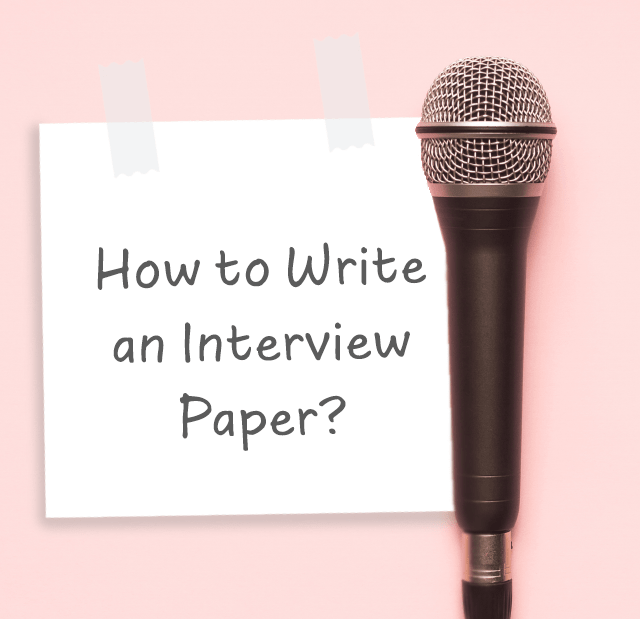

What is an Interview Paper?
An interview paper provides an expert opinion on a specific issue. In essence, it is an interview transcript inserted somewhere between the introduction and conclusion of an academic piece.
How long should it be? It depends on the topic and the length of your interview, but most papers are within the length of 2,000 – 5,000 words. What things should you consider before writing an interview paper in the first place? Let’s check them out below.
General Aspects of Writing an Interview Paper
Academic papers require you to provide arguments based on studies, research pieces, statistics, etc. But an interview paper is different – for this type of essay, you will develop assumptions around an expert’s opinion.
Let’s imagine your essay question reads the following: “Should we ban abortions?” If you write an interview paper, you should ask someone high-powered for their consideration. Let them be an executive director of the American Gynecological & Obstetrical Society.
You would reach them via email or phone or whatever communication channel you prefer and conduct an interview. Afterward, you would put all your findings on paper.
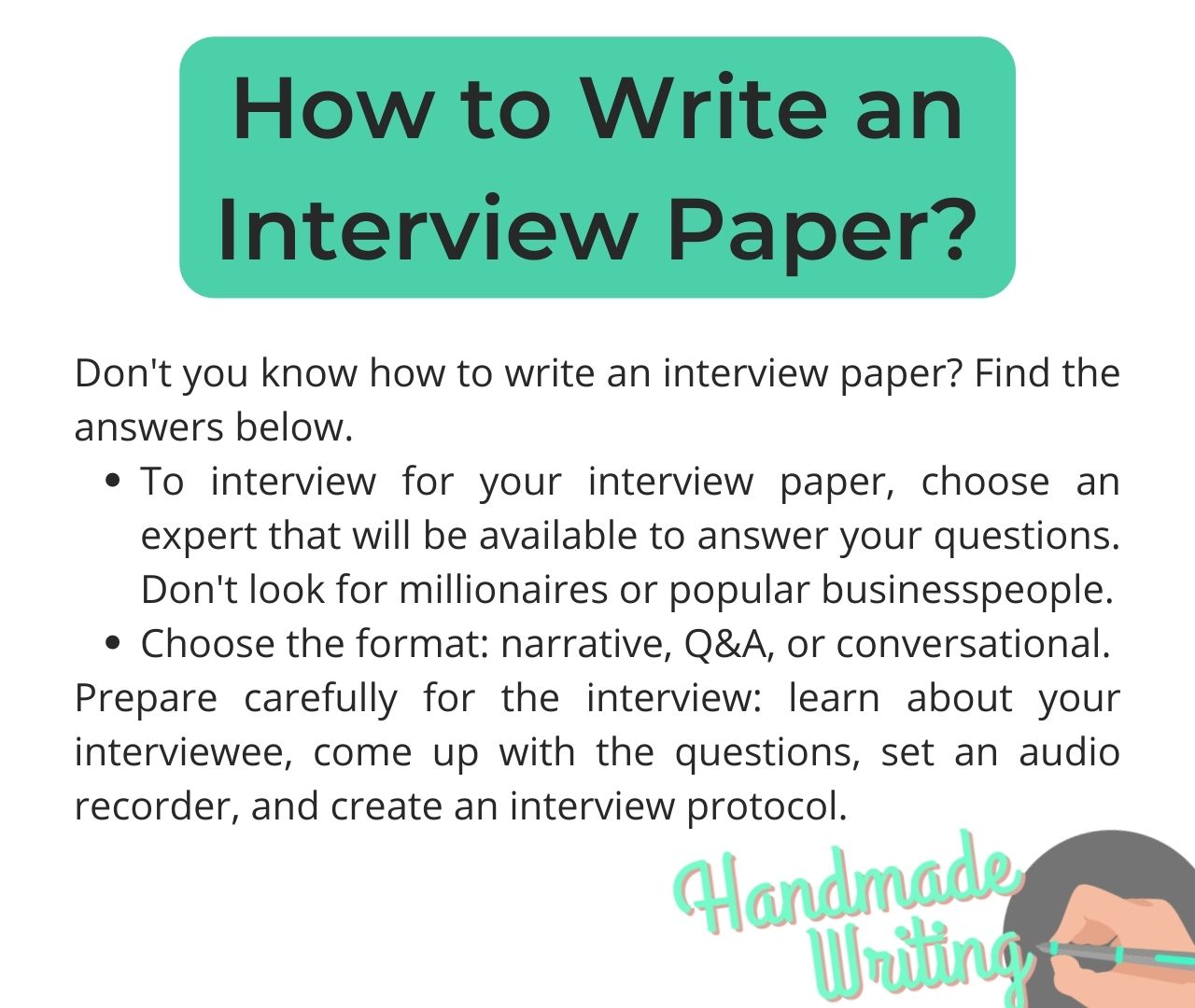
But in practice, writing an interview paper involves many more complexities and challenges, like planning, topic research , drafting, etc.
Let’s speak straight facts: nobody will reschedule their week to meet you because you need to do some homework. You’re one of the millions of students, and the local governor or a famous scientist won’t give you an interview nine times out of ten.
So you would want to target someone less busy, like professors from other faculties of your college or some researchers within your academic environment. Hunting a bigger fish is pointless unless you’re a well-established journalist working for a popular media channel. If you struggle to find someone within your college/university, you can contact people from your circle.
Writing Outline and Structure of an Interview Paper
As you know, a typical paper consists of three parts:
- Introduction. This part includes background information, the hook, the thesis statement, and the transition.
- Body. It is the longest part of the paper consisting of several paragraphs. It should contain the actual interview.
- Conclusion. The final part summarizes the considerations and insights of your essay.
The question is: ‘where should you put an interview transcript and how do you do this?’
To answer this question, you need to come up with the interview papers format in the first place. There are several of them:
The narrative format implies that you can use either direct or indirect speech when referring to your interviewee. If you choose this path, you can stick to a 5-paragraph essay structure, retell the considerations of your interviewee, and cite their words here and there at your discretion.
You can also choose this format if you contact several people. Check what a narrative interview paper structure looks like when you reach out to several people:
- Introduction.
- Paragraph #1 – the first interviewee’s perspective.
- Paragraph #2 – the second interviewee’s opinion.
- Paragraph #3 – the third interviewee’s thoughts.
- Conclusion.
Alternatively, you can dedicate each paragraph to a particular idea of one person.
“Question and answer” will suit your needs perfectly if you interview one person. It is the simplest format used in online magazines, news reports, and other media. Your interview paper outline will look like this:
- Introduction
- Question #1 – Answer #1
- Question #2 – Answer #2
- Question #3 – Answer #3
- Question #4/5/6/etc. – Answer #4/5/6/etc.
- Interview analysis. You may include your thoughts on the subject matter.
Conversational
Conversational style is informal, and you can use either first-person or second-person narrative and follow a typical 5-paragraph paper structure. But writing interview papers in this lousy style might be perplexing, especially if you deal with this task for the first time.
We advise you to try the Q&A format because it’s the simplest one and takes the least time. Just imagine how much time your paper writing will take if you decide to interview three or five people.
How to Start an Interview Paper?
If you have no idea how to start an interview paper, choose the topic first. Selecting a topic for your interview paper is not a big deal, but you should keep in mind that you may not find appropriate interviewees for it.
Let’s imagine you want to explore whether the government should force people to get vaccines. This topic implies that you need to contact authorities. It might be a local lawyer, governor, or executive director of a local hospital. Well, the chances are these people will politely refuse to give an interview for your homework.
But if you choose to investigate how lockdown impacts intellectual workers, you can contact your friends or family members who work at home. In other words, it’s better to choose topics that reflect the experiences of ordinary people rather than the opinions of untouchable experts.
Asking people for their opinion about well-known facts like the Earth’s shape is a bad idea. You would want to choose high-profile debatable topics you can actually discuss.
Establish the Goal of Your Interview Essay
You have to establish the goal of your essay before researching the topic. For this, ask yourself: “What message should your interview essay deliver?” Sometimes, a topic of your choice might already explain the purpose of your essay.
Conduct Research
Interviewing someone implies that you should ask questions. But you will fail to do so if you know little to nothing about your topic. So read some case studies, news, articles, etc. Once you get the picture of your subject matter, you will come up with dozens of interview questions.
Get to Know Your Interviewee
A good interviewer always refers to the life and experience of their interviewee. If you’re lucky to work with someone you can read about on the Internet, find out as much information about them as possible. If your interviewee publishes any books, articles, or studies, you will better know them as well.
The more you know about the person, the more interview questions you can come up with. You can ask them whether the Internet tells their true story: “Is it true that you, Mr. Interviewee, support flat earthers?”
Draft Your Interview Questions
If you want a person to share their in-depth vision of the topic, you need to ask both open-ended and close-ended (“yes/no”) questions. However, you may struggle to prepare interview questions. Many students get stuck during this stage. To overcome this block, you need to learn some types of interview questions:
- Opinion – What do you think of this topic?
- Behavioral – What would you do in this situation?
- Experience and knowledge – What do you know about the subject?
- Background – How are you connected to the subject? What is your age, occupation, etc?
- Emotional – How do you feel about the subject?
- Sensory – What does the subject taste and feel like?
You can also think of the questions following the interviewee’s “yes” and “no” answers.
Tips for Conducting a Successful Interview
These four tips will help you conduct a productive interview on the first try:
1. Plan Your Meeting
Note that you want to interview a person in a quiet place so that nobody will distract you. This might be some cozy book store or a café. Or, you can arrange an online meeting. Make sure you have at least one hour for the interview.
2. Rehearse a bit
If you will conduct your first-ever interview, you want to practice with your friends/significant other/ family in the first place. This approach will help you identify what stage of your upcoming interview may challenge you the most.
3. Record Your Interview
You will forget about 50% of the information within an hour once you finish the interview. So don’t rely on your memory − bring a recorder instead. Why not take notes? You wouldn’t want to go red while asking your interviewee to repeat what they have just said or wait until you write down their answers.
4. Talk to Your Interviewee for a While Before You Begin
Speaking to someone you don’t know might be uncomfortable. You don’t have to attack them with your interview questions straightaway. Instead, you can exchange some casual phrases or discuss the weather. This will help you relieve stress and get comfortable with each other.
5. Explain Your Interview Protocol
It’s better to explain to your interviewee how you will conduct your interview. Tell them that you will use a recorder and introduce the discussion topic.
Interview Papers Format

In academic writing, you have to explain the purpose of your interview and introduce your interviewee in a specific “scholarly” format. The APA format interview paper has the following requirements:
- Use 12-point Times New Roman.
- Write a title page.
- Use double spacing.
- Introduce your interviewee and provide the background information – explain why this person is suitable for the interview. Mention their name and qualifications.
- Use direct quotes if you cite some facts provided by the interviewee.
- Use block quotes for citations longer than 40 words.
How to Write a Title Page?
The title of your paper must include your name, your institution, department, the course name and number, the teacher’s name, and the assignment date. The rules of writing the title page are the following:
- The title page must be numbered.
- Capitalize all major words in your title and make it bold.
- Place the title of the essay three or four lines down the top of the page.
- There must be one empty line before the student’s name.
Interview Papers Examples
If you’re searching for an interview essay example – check several samples below:
- A narrative interview essay .
- A Q&A interview format paper.
- An interview with a scientist.
Interview Papers Writing Tips
The following writing tips will help you deliver the first-class interview paper:
- Write the introduction at the end. Once you finish your essay, you will likely reconsider some ideas you had before you began. They will help you frame your interview essay with a captivating introduction and conclusion.
- Give yourself a break after finishing your final draft. This will help you look at your paper with a fresh pair of eyes once you start editing.
- Edit one type of error at a time. For example, you can reduce logical errors first and switch to grammatical mistakes afterward.
- Use an active voice. If active voice makes your sentence shorter, use it without hesitation.
- Check for any sample interview paper to decide on the interview questions. Perhaps, some pieces will spark your interest.
Writing Help by Handmadewriting
An interview paper doesn’t seem that intimidating once you learn how to write it step by step. First, you have to choose the subject that allows you to interview ordinary people rather than hard-to-reach ones. Then, you need to research your topic, conduct an interview, and write a paper.
You can get an A+ for this assignment with enough effort and dedication. But a doable task doesn’t necessarily mean that you must do it by yourself. If you have plenty of other assignments to do, you can ask our essay writers to craft an exemplary interview paper for you. For this, you can place an order on our website, and we will do all the dirty work.

A life lesson in Romeo and Juliet taught by death
Due to human nature, we draw conclusions only when life gives us a lesson since the experience of others is not so effective and powerful. Therefore, when analyzing and sorting out common problems we face, we may trace a parallel with well-known book characters or real historical figures. Moreover, we often compare our situations with […]

Ethical Research Paper Topics
Writing a research paper on ethics is not an easy task, especially if you do not possess excellent writing skills and do not like to contemplate controversial questions. But an ethics course is obligatory in all higher education institutions, and students have to look for a way out and be creative. When you find an […]

Art Research Paper Topics
Students obtaining degrees in fine art and art & design programs most commonly need to write a paper on art topics. However, this subject is becoming more popular in educational institutions for expanding students’ horizons. Thus, both groups of receivers of education: those who are into arts and those who only get acquainted with art […]
- PRO Courses Guides New Tech Help Pro Expert Videos About wikiHow Pro Upgrade Sign In
- EDIT Edit this Article
- EXPLORE Tech Help Pro About Us Random Article Quizzes Request a New Article Community Dashboard This Or That Game Happiness Hub Popular Categories Arts and Entertainment Artwork Books Movies Computers and Electronics Computers Phone Skills Technology Hacks Health Men's Health Mental Health Women's Health Relationships Dating Love Relationship Issues Hobbies and Crafts Crafts Drawing Games Education & Communication Communication Skills Personal Development Studying Personal Care and Style Fashion Hair Care Personal Hygiene Youth Personal Care School Stuff Dating All Categories Arts and Entertainment Finance and Business Home and Garden Relationship Quizzes Cars & Other Vehicles Food and Entertaining Personal Care and Style Sports and Fitness Computers and Electronics Health Pets and Animals Travel Education & Communication Hobbies and Crafts Philosophy and Religion Work World Family Life Holidays and Traditions Relationships Youth
- Browse Articles
- Learn Something New
- Quizzes Hot
- Happiness Hub
- This Or That Game
- Train Your Brain
- Explore More
- Support wikiHow
- About wikiHow
- Log in / Sign up
- Education and Communications
- College University and Postgraduate
- Academic Writing
How to Write an Interview Essay
Last Updated: March 11, 2024 Fact Checked
This article was co-authored by Diane Stubbs . Diane Stubbs is a Secondary English Teacher with over 22 years of experience teaching all high school grade levels and AP courses. She specializes in secondary education, classroom management, and educational technology. Diane earned a Bachelor of Arts in English from the University of Delaware and a Master of Education from Wesley College. This article has been fact-checked, ensuring the accuracy of any cited facts and confirming the authority of its sources. This article has been viewed 465,051 times.
An interview essay is designed to give the reader a general impression of the interview subject and to present their thoughts on a select group of topics. It also offers the opportunity to develop deeper insights by analyzing the interviewee's responses within a larger context. Interview essays are a common school assignment, and provide useful skills for those interested in journalism, or just being good writers in general. There are several formats that fit into the category, but a good interview essay of whatever type can make the reader feel as though they were asking the questions.
Interviewing for an Essay

- If your essay is to be a factual piece, you'll want to interview someone who has expertise in the subject matter you'll be addressing. If your paper is about a science topic, you'll want to interview a scientist in that field. If your paper is about a period of history, you'll want to interview either a historian or someone who's lived through that period of history.
- If you plan to make your essay an opinion piece, you'll likely want to interview someone who has a strong opinion about the topic covered in your essay. Ideally, you want someone who can express opinions articulately, and who also has credentials in the area you plan to write about.
- If your piece will have a narrow perspective, you'll need to interview only one or two people. If your piece will present a general consensus, you'll need to interview more people, probably with varying expertise and credentials.

- When available, read works about and works written by your subject, both in print and online. At the same time, research the topic associated with your subject. The more you know about both, the more intelligent questions you can ask.
- Look for previous interviews your subject has given, as well. These will give you an idea of what questions the person has been asked before, so you can decide on appropriate subjects for your own questions, including questions that no one else has asked.
- Questions that require "yes" or "no" answers are good for gathering specific factual information; open-ended "how," "why," and "tell me about" questions are great for gathering additional background material not found in your research.
- Draw up a list of the questions you are prepared to ask. Have more questions ready than you will likely use, so that you can make adjustments as the interview takes place. (For instance, your subject may begin focusing on what you thought was a side topic, but turns out to be the key part of your interview.) Rank your questions in order of importance to make sure you ask your best ones, or list them all in the order you'd ask them and color-code the most important ones.

- Choose a quiet place with few distractions for your interview site. A library, restaurant, or campus location if you're doing this for a college writing class would be suitable.
- You may want to get the interviewee's consent to use their comments in your essay in writing, as well as permission to record those comments during the interview. By law, if you are recording an interview conducted over the phone, you must obtain written permission. [4] X Trustworthy Source University of North Carolina Writing Center UNC's on-campus and online instructional service that provides assistance to students, faculty, and others during the writing process Go to source
- It's helpful to have a backup interviewee in case the person you plan to interview can't make it.
- Be on time at the place you've agreed to meet for the interview.

- Using a recording device (with permission) is almost always advisable, as it permits you to save your note-taking for jotting down your insights on contexts, themes, how your subject approaches the questions, his/her comfort level, and so on.
- Be patient and respectful as you ask your questions and wait for responses. Give the interviewee time to reflect, and you will likely be rewarded with more insightful answers. A few deeper responses are usually better than many superficial ones.
- Immediately after the interview, write down your thoughts and impressions about the interview and interviewee. They may help you shape the essay.
- Always end the interview by thanking the person.
Writing the Essay

- Narrative format. This form allows paraphrasing of some information the interviewee says, along with direct quotes for the material you most want to emphasize. This is the most likely format for a class assignment, and offers the most opportunity to add context and analysis.
- Conversational format. This is a looser format than the formal writing style required for most essays. You can address the reader directly and use both first and second person. This format can be suitable for anything from class assignments to magazine articles.
- Question-and-answer format. This form presents your questions to the interviewee, followed by the interviewee's responses. (That is, the text looks something like this: (Your Name): How long have you been in the circus? (Interviewee's Name): About 35 years.) These are always direct quotes, although you may insert explanatory material in parentheses and substitutions, such as a person's name in place of a personal pronoun, in brackets. This format is best suited for essays with only a single interviewee or a closely related group, such as spouses or the core cast of a TV show.
- Informative format. This format usually interweaves the interview with research you've done on the subject, incorporating some of that research in the text to provide background and give it a little more color.

- Read over your interview notes and listen to any audio / video recordings you have. Utilizing both whenever available will allow you to thoroughly consider both the highlights of the interview and the most significant themes to emerge from it. These, in turn, will inform your outline of what information your essay will cover and how it will appear. [9] X Research source
- One possible outline could be an introduction that starts with an anecdote about the interviewee and then presents your thesis statement, several key points that support the main focus, and a conclusion that summarizes the information presented. Traditional school essays often utilize a five paragraph format (introduction, three supporting paragraphs, conclusion), and this can often work with interview essays as well.

- If, however, the purpose of your essay is to use your interviewee's comments to support a position or examine a larger theme, your thesis will probably be a statement of that position or theme, with the interview / interviewee placed within that context. For instance: "John Doe's mixed feelings of pride and betrayal reflect those shared by many Vietnam veterans still with us."
- Regardless of essay format, make your thesis clear and concise, and be sure that the remainder of your essay refers back to it. See How to Write a Thesis Statement for more advice.

- Interviews can sometimes produce a good deal of repetitive answers (even with high-quality questions), so you may need to trim repetitions and unnecessary elements from the body of your essay. Make sure that whatever material you do keep remains true to both the spirit of the interview and the overarching focus of your essay. [10] X Research source
- A handout from the Writing Center at the University of North Carolina (available at http://writingcenter.unc.edu/handouts/oral-history/ ) provides a wealth of valuable materials on interview essays. It includes, for instance, examples of how to utilize the same interview materials in a transcription (question-and-answer format), a presentation of individual experiences (quotations and paraphrases), and the placing of the interview / interviewee in a larger context (paraphrasing and quotations with ample explanation).

- Reading over the essay yourself is a good start, but it is always wise to have another set of eyes look it over as well. Another reader is likely to catch errors, repetitions, and unclear sections that you have glossed over. [12] X Research source
- Go back to your original interview notes, recordings, and transcripts, and make sure that your essay continues to reflect the actual interview. Layers of editing and revising can sometimes cause the essay to drift away from the original source and intent. You may even want to let the interviewee read it over to ensure that it captures their voice. [13] X Research source

- Any materials you used for research, information about the interviewee, or context for the essay itself should be referenced in the approved citation format for your essay.
- Make sure one more time that any direct quotations from your source are placed in quotation marks, and any paraphrasing is done without quotation marks. Don't put words in your subject's mouth, and respect the words that do emerge from it.
What Are The Dos And Don’ts Of a Journalistic Interview?
Expert Q&A

- After the interview, send the interviewee a written thank-you note expressing your appreciation for their time. Thanks Helpful 0 Not Helpful 0
- If the person you're interviewing is busy or elderly, you may want to plan for more than one interview session. Observe the interviewee for signs of impatience or fatigue. Conduct multiple, shorter sessions if necessary. Thanks Helpful 0 Not Helpful 0

- If you plan to interview someone over the telephone, permission to record the conversation is required by law. Thanks Helpful 15 Not Helpful 3
You Might Also Like

- ↑ http://writingcenter.unc.edu/handouts/oral-history/
- ↑ https://www.indeed.com/career-advice/interviewing/interview-paper
- ↑ http://www.whatkidscando.org/featurestories/2007/maine_students/tip_sheets/FIRST-PERSON%20ESSAYS%20TIP%20SHEET.pdf
- ↑ http://www.brighthubeducation.com/help-with-writing/97515-how-to-write-an-interview-essay/
- ↑ https://owl.purdue.edu/owl/general_writing/the_writing_process/proofreading/proofreading_suggestions.html
About This Article

To write an essay from an interview, you’ll first have to decide on the format the essay will take, as this will determine the structure and what you write. The most common form is the narrative format, in which you use direct quotes and paraphrase your subject to add context and detail, or you can write in a more conversational tone, or even in a directly transcribed question-and-answer form. Once you decide on format, plan an outline by forming a central thesis, which will be the central statement your essay is making. Add onto the outline by drafting supporting evidence directly from the interview and from other sources, like books, newspaper articles, other essays, anything else to support your point. Write and finish the essay by combining information from the interview and other sources with your own explanations and words. To learn about how to conduct the interview to get enough information to write about and how to finish the writing process, keep reading! Did this summary help you? Yes No
- Send fan mail to authors
Reader Success Stories
Oct 19, 2016
Did this article help you?

Tyler Jordan
Sep 11, 2016
Tawana Moos
Nov 20, 2017
Mar 28, 2016
David Mcaniel
May 23, 2017

Featured Articles

Trending Articles

Watch Articles

- Terms of Use
- Privacy Policy
- Do Not Sell or Share My Info
- Not Selling Info
wikiHow Tech Help Pro:
Level up your tech skills and stay ahead of the curve
Learning Materials
How to write an interview essay: complete guide.

Updated: Apr 19, 2024

Ever wondered how to transform a simple conversation into a compelling narrative? Writing an interview essay can seem daunting, especially when you're unsure where to start or how to make it engaging. An interview essay should effectively present the interviewee's thoughts on selected topics, using a structured format that combines direct quotes, paraphrasing, and your own analysis to enrich the content. This guide will walk you through the entire process of creating an interview essay, from structuring and formatting to selecting the right questions and crafting a narrative that resonates with readers.
Start Writing Your Free Essay!
The process of writing an interview essay: an overview.
Writing an interview essay involves more than just transcribing conversations. It requires a thoughtful approach to select, organize, and present the interview content in a way that tells a compelling story. Starting with a clear understanding of the essay's purpose, writers need to decide on the format—narrative, Q&A, or a thematic exploration. This choice will significantly influence the structure and presentation of the interview content, guiding the entire writing process from the questions you ask to the way you interpret the answers.
Preparation is key in crafting an effective interview essay. Before even beginning the interview, it's crucial to research the interviewee and the topic thoroughly to ask insightful questions that elicit meaningful responses. Organizing these findings into a structured outline will help streamline the writing process, ensuring that the essay remains focused and coherent. The outline should include an introduction that sets the stage, a body that delves into the interviewee's perspectives, and a conclusion that ties everything together and reflects on the insights gained.
Outlining Your Interview Essay: A Structured Approach
Creating a structured outline for your interview essay is essential as it acts as your writing roadmap. Start with an introduction that presents your thesis statement and gives a brief overview of the interviewee. The body should be divided into several paragraphs, each focusing on a different theme or topic discussed during the interview. Finally, conclude with a summary that reiterates the main points and reflects on the overall insights. This structured approach ensures that your essay is organized and maintains a logical flow from start to finish.
Formatting Guidelines for an Interview Essay

Adhering to specific formatting guidelines is crucial in crafting a well-organized interview essay. Typically, your essay should start with an introduction that hooks the reader and introduces the interviewee. The body of the essay should follow the outline, using clear headings for each section if necessary, and include direct quotes and paraphrases from the interviewee. In terms of presentation, use a readable font, double-spacing, and include page numbers. Always cite your sources correctly to avoid plagiarism and enhance the credibility of your essay.
Dos and Don'ts in Writing an Interview Essay

When writing an interview essay, there are several best practices to follow and pitfalls to avoid. Do ensure clarity by using simple language and avoiding jargon that might confuse readers. Do maintain the authenticity of the interview by accurately representing the interviewee's responses. Don't manipulate quotes to fit your narrative, as this can mislead readers and take away from the interviewee's intended message.
Additionally, do focus on creating a narrative that engages readers, weaving quotes and insights into a compelling story. Don't overlook the need for thorough editing to polish your essay and enhance readability. Avoid overly long paragraphs that can deter readers, and ensure your paragraphs transition smoothly to keep the reader engaged from start to finish. Following these guidelines will help you craft an insightful and respectful interview essay that is both informative and enjoyable to read.
Crafting an Engaging Introduction for Your Interview Essay
Crafting an engaging introduction is crucial for capturing the reader's interest right from the start of your interview essay. Start with a hook that grabs attention; this could be a startling statistic, a poignant quote from the interviewee, or an intriguing question that sets the stage for the narrative. The goal is to pique the reader's curiosity and draw them into the story you're about to unfold, making them eager to learn more about the interviewee and the insights they have to offer.
Once you've captured the reader's attention, it's important to provide a brief overview of the interviewee and the main themes of the essay. This not only introduces the subject but also sets the tone for the rest of the essay. Include a compelling thesis statement that outlines the central idea or the primary insight the interview will explore. This approach ensures that your introduction serves as a concise roadmap for the readers, guiding them through the insights and narratives that will be developed in the body of the essay.
Concluding Your Interview Essay Effectively
Concluding your interview essay effectively is key to leaving a lasting impression on your reader. Summarize the main points and insights shared by the interviewee, reflecting on how they contribute to the broader topic or issue at hand. It's crucial to restate your thesis in a way that reflects the discussions and revelations from the interview, providing closure and reinforcing the significance of the interviewee's perspectives. Consider ending with a thought-provoking question or statement that encourages readers to think deeply about the subject, thereby extending the impact of the essay beyond its final words.
Enhancing Your Interview Essay with Narrative Style
To elevate your interview essay from a mere transcript to a vivid narrative, it's essential to embrace a narrative style. This approach involves weaving the interviewee's responses into a storyline that resonates with readers. By focusing on the flow of events and the emotional journey of the interviewee, you can create a more immersive experience. This style not only keeps the readers engaged but also allows them to connect deeply with the subject matter, seeing the interviewee not just as a source of information, but as a character in a compelling story.
Utilizing narrative techniques such as dialogues, descriptive details , and personal anecdotes can significantly enhance the readability and impact of your interview essay. These elements help to paint a vivid picture of the interviewee and their experiences, making the story come alive. Moreover, integrating direct quotes strategically throughout the essay adds authenticity and gives a voice to the narrative, allowing readers to experience the interviewee's personality and emotions firsthand.
Choosing the Right Questions for Your Interview
Selecting the right questions for your interview is crucial in crafting a narrative that captures the essence of the interviewee's experiences and perspectives. Focus on open-ended questions that encourage detailed responses, and consider how each question will contribute to the unfolding story. Here are a few tips:
- Ask about specific life events that shaped the interviewee's viewpoint.
- Inquire about challenges and successes to reveal depth and personal growth.
- Tailor questions to evoke emotions and personal reflections, which enrich the narrative.
By carefully choosing questions that align with the narrative style of your essay, you can gather compelling content that engages and resonates with your audience.
Elevate Your Interview Essay with Samwell.ai's Writing Tools
Elevating your interview essay becomes seamless with Samwell 's advanced AI-powered writing tools. Whether you're a student or a professional, Samwell ensures that your essay adheres to the highest standards of academic integrity. The AI assistant helps you integrate direct quotes and paraphrases accurately, ensuring that each citation is formatted correctly according to your specified style, be it APA, MLA, or Chicago. This meticulous attention to detail not only enhances the credibility of your essay but also saves you valuable time.
Moreover, Samwell 's advanced plagiarism checks are integral to maintaining the originality of your work. Here’s how it benefits you:
- Scans your essay against a vast database to detect any potential plagiarism.
- Highlights sections that require rephrasing to ensure uniqueness.
- Provides suggestions for citations to fortify your claims and avoid academic misconduct. This feature of Samwell not only protects your academic reputation but also instills confidence in your writing, allowing you to submit your interview essay with peace of mind.
Frequently Asked Questions
How do you start an interview essay.
Starting an interview essay effectively involves crafting an engaging introduction. Begin with a hook that grabs the reader's attention, such as a startling statistic, a poignant quote, or an intriguing question. Follow this with a brief overview of the interviewee and the main themes of the essay, and include a compelling thesis statement that outlines the central idea or primary insight the interview will explore.
How to start writing an interview?
To start writing an interview, first ensure you have a clear understanding of the essay's purpose and decide on the format—narrative, Q&A, or thematic exploration. Prepare by researching the interviewee and the topic thoroughly to formulate insightful questions. Organize your findings into a structured outline with an introduction, body sections based on themes, and a conclusion. This preparation sets the foundation for writing an engaging and coherent interview essay.
How do you summarize an interview in an essay?
To summarize an interview in an essay, focus on condensing the main points and insights shared by the interviewee. Reflect on how these contribute to the broader topic or issue at hand. Restate your thesis in a way that reflects the discussions and revelations from the interview, providing closure and emphasizing the significance of the interviewee's perspectives. Consider ending with a thought-provoking question or statement to extend the impact of the essay.
Most Read Articles

Your Guide to Help Writing a Essay Successfully
Expert tips for help writing a essay - from crafting a thesis to structuring your essay effectively..
How to Write Critical Thinking Essay: Expert Tips
Expert tips for writing a critical thinking essay. learn how to structure, choose topics, and use evidence effectively.'.

How to Write a Good Hook: A Step-by-Step Guide
Master the art of crafting a good hook with our guide. create compelling openers for a memorable first impression..

Ultimate Guide to Writing Tips: Enhance Your Skills Today
Discover a variety of writing tips in our ultimate guide to elevate your skills today, start humanizing for free.
How to Write an Interview Essay: Questions, Topics, Examples & Tips
.webp)
In the realm of writing, interviews bring a unique touch, a personal narrative that adds depth to your words. Picture this: someone's story unfolding through your pen, their experiences laid out for the world to read. But how do you capture that essence, ask the questions that matter, and turn it into a compelling read?
Fear not! Our guide breaks the interview essay examples down for you, step by step, making essay writing for interview as simple as sharing a cup of coffee with a friend. So, let's get started on turning conversations into captivating tales that will help you get your first remote job !
What Is an Interview Essay?
The process of interview essay writing is essentially a conversation transformed into written form. It involves engaging with someone, posing thoughtful questions, and then translating their responses into a narrative for others to read. Think of it as capturing the essence of a personal exchange, where the interviewee shares their experiences, insights, or expertise.
The goal is to convey the individual's unique perspective and story in a way that resonates with readers. It's like being a storyteller with a purpose – to amplify someone else's voice and share their narrative with a broader audience. Interview essays provide a platform for individuals to express their thoughts, share their journeys, and contribute their perspectives to a wider conversation.
How to Write an Interview Essay?

Step 1: Define the Essay's Purpose
Start your journey into crafting a job interview essay by figuring out exactly what you want to achieve. Ask yourself: Why am I conducting this interview, and what story or message do I want to share? It could be about someone's experiences in the professional world, valuable insights into a particular industry, or shedding light on the intricacies of a specific job role. Having a clear purpose will help you stay on track and make sure your essay has a point.
Step 2: Explore the Subject through Research
Before you dive into the interview, take some time to get to know the person you'll be talking to. Look into their background, experiences, and anything else that might be important. This research not only helps you come up with good questions but also shows the person you're interviewing that you care about their story. Knowing more about your subject makes your questions more thoughtful, turning the phone interview into a richer and more interesting conversation.
Interview Essay Topics
Need a dose of inspiration? Our experts have compiled compelling essay topics for interview. Explore and choose one that sparks your curiosity and invites in-depth analysis:
- How do people feel about remote work after experiencing it?
- What's the most memorable volunteer experience for community members?
- How do small business owners handle daily challenges?
- What makes a family game night special for different families?
- How do individuals manage stress in their everyday lives?
- What are the favorite childhood memories of people in your community?
- How do pet owners bond with their furry friends?
- What are some creative ways people stay active without going to the gym?
- How do grandparents share wisdom with younger generations?
- What role do hobbies play in people's lives for relaxation?
- How do individuals practice self-care on a busy schedule?
- What's the favorite local food joint for residents in your area?
- How do students manage their time during exam periods?
- What's the secret behind successful long-term relationships?
- How do individuals find joy in simple, everyday moments?
- How do people discover and choose their favorite books to read?
- What's the go-to comfort food for individuals on a rainy day?
- How do commuters make the most of their time during daily travels?
- What's the most cherished holiday tradition for families in your community?
- How do individuals celebrate personal achievements and milestones?
Step 3: Formulate Your Questions
Now that you've got a grip on your essay's purpose and know your subject, it's time to craft thoughtful questions. Think about what will bring out the most interesting and meaningful responses. Ask open-ended questions that encourage the interviewee to share their experiences, insights, or opinions. This step is like laying the groundwork for a conversation that will unveil the essence of your subject's story.
Interview Essay Questions
- How has the integration of technology impacted your communication within your family?
- Can you share a transformative experience from participating in a unique sports or recreational activity?
- What strategies have you employed to foster a positive work-life balance in your professional journey?
- In your opinion, what elements contribute to creating a successful and harmonious blended family dynamic?
- How do you navigate and manage personal finances to ensure financial stability and security?
- Can you recall a specific instance where a mentor or role model profoundly influenced your life choices?
- What innovative methods have you discovered for staying connected with distant relatives or friends?
- How do you incorporate mindfulness and mental wellness practices into your daily routine?
- In your experience, how do cultural traditions shape and influence family dynamics and relationships?
- Can you share a travel experience that left a lasting impact, broadening your perspective on life?
- What are your strategies for maintaining a healthy and active lifestyle despite a busy schedule?
- How do you approach and overcome creative blocks or challenges in your artistic endeavors?
- Can you recount a significant moment of personal growth or self-discovery that shaped your identity?
- What lessons have you learned from navigating a cross-cultural or interfaith relationship?
- How do you approach building a sense of community and fostering connections within your neighborhood?
- How do you incorporate eco-friendly practices and sustainability into your daily life?
- How much of an impact does social media have on personal relationships and societal dynamics?
- Did you ever face a major decision and the thought process that guided your choice?
- How do you stay informed about current events, and how does this impact your worldview?
- How much are you involved in a hobby or passion that brings you joy and fulfillment?
Step 4: Reach Out to the Interviewee and Ready Yourself for the Interview
Take the plunge and connect with the person you're interviewing. Reach out in a friendly manner, explaining your purpose and why you value their perspective. Once you've secured the interview, prepare yourself. Familiarize yourself with the questions, make sure your equipment (if any) is ready, and create a comfortable setting for the conversation. Being organized and ready ensures a smooth and effective interview process, allowing the person you're speaking with to open up and share their story effortlessly.
Step 5: Conduct the Interview
Now that you've set the stage, it's time for the main event! As you step into the interview, approach it with a genuine sense of curiosity, as if you're unwrapping a present of stories and insights. Take a moment to breathe and let the conversation unfold naturally. Pose your questions with patience, allowing the interviewee the space to share their thoughts.
Active listening is key – not just to their words but to the nuances in their tone and the emotions beneath the surface. It's in these unscripted moments that the most captivating and unexpected stories often emerge. Embrace flexibility, as sometimes the richest narratives come when you least anticipate them. Remember, your ultimate aim for successful interview essays is to authentically capture the essence of the person's experiences or insights, so let the first job interview be a genuine and unfiltered exploration.
Step 6: Select an Interview Essay Format
As you wrap up the interview, consider how you want to present its essence. The right format sets the tone and it is your tool to engage the readers effectively in your interview essays.
You have a variety of styles to choose from: opt for the classic Q&A, where questions and answers flow seamlessly; weave a narrative, transforming responses into a compelling story; or adopt a thematic structure for a logical organization. Each style brings its own flavor to the table. The format you choose becomes the lens through which your readers experience the interview, so select one that not only enhances the narrative but also resonates with your audience. Ultimately, your choice of format shapes how your audience engages with the richness of the conversation.
Step 7: Develop an Interview Essay Outline
Now that you've gathered all the insightful details, it's time to structure your essay. Create an interview essay outline that organizes the key points, highlights significant moments, and establishes a logical flow. Consider the introduction, body, and conclusion, and map out how the interviewee's story will unfold. This roadmap will guide you on how to write an interview essay, ensuring a cohesive and engaging narrative that does justice to the richness of the conversation.
Introduction:
The introduction to an interview essay is where you say hello to your reader and give them a sneak peek into what's coming. Briefly introduce who you interviewed and share a little about why their story is worth hearing. You can start with something interesting to grab attention, like a question or a surprising fact. The main job here is to make your reader curious about what comes next.
The body is where the real action happens. Think of it like the main part of a story. Each paragraph tackles a different aspect of what you learned in the interview. Start with the most important points and follow a logical order. Share the juicy details and interesting moments. Keep things organized, so your reader can easily follow along. It's all about presenting the interviewee's story in a way that's interesting and makes sense.
Conclusion:
The conclusion is your chance to wrap things up. Summarize the key points from the interview and remind your reader why it's important. You can add a personal reflection or suggest what readers might take away from the interviewee's experiences. End on a strong note, leaving a lasting impression. It's like saying goodbye but making sure it's memorable.
Step 8: Proofread Your Work
Before sharing your interview essay writing with the world, take a moment to proofread. Check for grammar and spelling errors, ensure the sentences flow smoothly, and verify that your chosen format enhances the overall readability. This step is your chance to polish the final product and present a well-crafted piece. A carefully proofread essay not only reflects professionalism but also ensures that your audience can fully focus on the captivating story you've worked so diligently to convey.
Step 9: Include Proper Citations
As the finishing touch to your interview essay, don't forget to give credit where it's due. Include proper citations to acknowledge any external sources or references used during your research. Whether it's direct quotes, paraphrased information, or data from other works, citing your sources adds credibility to your essay and shows respect for the original contributors. Follow the citation style specified by your assignment or publication guidelines, ensuring transparency and integrity in your writing. This step ensures that your readers can trace back and explore the sources that contributed to the depth of your interview essay.
Life Is about Balance — Don’t Do Things in Excess.
Hire an Expert to Balance Work and Studies!

Interview Essay Example
To illustrate the art of turning a conversation into a compelling essay, let's delve into an interview essay sample with Sarah Rodriguez, an avid urban gardener with a green thumb and a passion for sustainable living. Through this example, we'll explore how to capture the essence of someone's experiences and insights, transforming a casual chat into a narrative that resonates:
Sarah Rodriguez's balcony garden in the heart of the city is a testament to the possibilities of urban gardening. As we sat surrounded by thriving plants, she shared her journey into sustainable living and the joys of cultivating a green oasis in a concrete jungle.
Urban gardening might seem like a niche interest, but for Sarah, it's a way of life that has transformed not only her living space but also her perspective on sustainable practices. In this interview, we'll dive into the roots of Sarah's passion, exploring how she turned a small balcony into a flourishing garden and gained insights into sustainable living along the way.
Sarah's journey began with a desire for fresh herbs, a longing that led her to experiment with container gardening. 'It started small, with a few potted herbs like basil and mint,' she recalled. 'But as I learned more about sustainable gardening practices, it evolved into something much more significant.'
Each paragraph in the body delves into a different aspect of Sarah's experience. From the challenges of limited space to the joy of harvesting her own produce, the narrative weaves through her urban gardening adventure. Key moments, such as discovering the benefits of composting or experimenting with rainwater harvesting, add depth to the story.
As we wrap up the interview, Sarah reflects on the impact of urban gardening on her life. 'It's not just about the plants; it's about connecting with nature in the midst of a bustling city,' she shares. Through Sarah's journey, we glimpse the potential of turning a small balcony into a sustainable haven. This interview essay not only captures the practical aspects of urban gardening but also highlights the personal growth and connection to the environment that can stem from such a simple yet impactful endeavor.
Bringing It All Together
We hope you picked up some handy tips in this guide to shine in your journalism class. But hey, if you crave more guidance on how to prepare for a job interview essay, our expert writers are all ears and ready to share more insights! Feel free to reach out for extra help and nail that assignment with confidence.
Need a Professional Experienced Writer?
We exclusively work with the greatest authors, who offer students unique, customized writing. Ask for our assistance if you need to purchase essays online

How to Write an Interview Essay: Complete Guide
College and high school teachers often assign interview papers to test their learners’ planning, paraphrasing, and critical thinking skills. So, besides drafting a well-substantiated and information-packed piece, students must also organize and conduct an interviewing process.
Hence, this assignment is far from straightforward. Quite the contrary, it requires substantial pre-work before the actual meeting. Moreover, the task further complicates if you include several subjects or elaborate on a compelling theme.
What if you can’t meet an ideal candidate to elaborate on your topic? How to pose questions that reveal valuable information and present your findings on paper? How to write an interview essay introduction with attention-grabbing ideas that bring up current dilemmas or resolve an issue? There are so many trilemmas spinning around your head.
Fortunately, there’s no need to feel intimated or discouraged. This article will help you grasp the basics of an interview paper and how to write an outstanding piece. It will also discuss the steps involved in the writing process and give a few helpful tips that ensure your final product passes with flying colors.
What Is an Interview Essay?
An interview paper is an academic written piece that presents the insight the interviewer gained while interviewing one or several people. It aims to expose different perspectives on a particular topic once the writer gathers relevant data through research. Typically, the essence of the paper will rest upon your findings from the interviews.
The presented viewpoints will depend on the respondent. So, for example, if your paper interview focuses on social media, you might consider talking to an influencer. Conversely, if you’re elaborating on a burning social issue, you may want to speak to a local authority. Or set up a meeting with a scientist if you’re exploring natural sciences.
The interview paper must help the reader understand a concept backed by relevant statements. Unlike definition essay writing , where you paraphrase and cite trusted sources like scholarly books, the interview paper will stem from authoritative individuals in the respective field.
Finally, you can reap a lot of benefits from drafting interview essays. More specifically, those interested in becoming broadcast journalists, newspaper reporters, or editors will learn to pose thought-provoking questions. Similarly, HR managers will polish their screening ability and hire excellent candidates. Even prospective detectives and inspectors can gain from writing an interview essay. They will formulate a variety of engaging questions to get honest and accurate answers.
Outline and Typical Structure of an Interview Paper
Most essays follow the template of a basic 5-paragraph paper. Yet, the length can vary according to your subject and data availability. A standard interview essay from a custom writing service can range from 2,000 to 5,000 words or up to ten pages. Individual works are usually shorter.
The interview essay format will have an introduction, body segments (perspectives grouped under different subheadings), and a summary. Here’s an overview of what to put in each part.
Introduction . The writer needs to create an atmosphere of uncertainty and urgency to stimulate the audience to keep reading. It should also provide background information about the theme and the interviewee. Furthermore, the initial part can list statistics or what society thinks about the respective topic. Finally, your intro must contain a thesis that transitions into the main section.
Body . This part will present the pillars on which you conceptualized your research. If you get stuck while drafting the body, you might hire an online service to write an essay for you and incorporate the gathered data. They will isolate the main points and help you frame the perfect timeline of events.
Moreover, the body should reflect important facts, life periods, and considerations of your interviewees. For instance, you might split your paper into infancy, adolescence, university, marriage, and golden years. Or you might divide your segments according to different discussion questions.
Conclusion . Use the ending part to summarize the interviewee’s thoughts and your insights into the matter. You might also compare the available data to the facts collected during the meeting and verify their validity. The bottom line must leave a lasting impression on your audience.
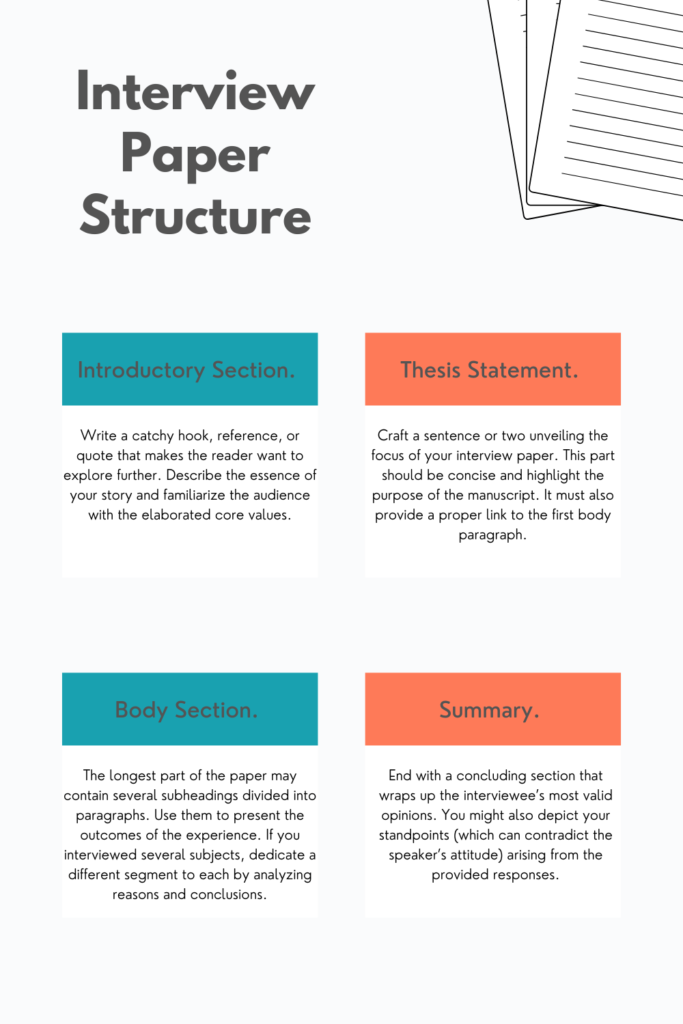
Steps for Writing a Successful Interview
Below is a detailed description of the paper composition journey. Consider each step carefully and be consistent in your approach.
Define the Paper’s Objective
Writing an interview paper urges you to establish the overall purpose. You will have to specify the message you plan to deliver. For example, if you want to verify a public opinion, you’ll have to question several subjects. Alternatively, proving a natural phenomenon will require a conversation with an expert in the field.
Explore the Subject
Find and prepare printed and virtual materials related to your research. Previous interviews and works by the interviewee are also vital. Unlike rebuttal essays , your primary goal is to gather details supporting your claims. Therefore, brainstorm any note you found based on your predefined criteria.
Pick an Interview Format
Your sample form will depend on the specific theme. Most students decide to buy a literature essay online due to their lack of formatting skills. Here are the various formats you can choose when presenting your findings.
This format implies using direct or indirect speech to analyze the storyline. Consider retelling the considerations of the interviewee and citing the original wording. The narrative format is also advisable if you talk to a few interviewees. The structure should contain an intro, a body (each paragraph can describe a particular idea of a single person), and a summary.
Question-and-answer essays are ideal when interviewing one person. Most magazines and news reports prefer this type because it is the simplest. Your interview paper will have an intro, different parts for each question and answer, an analysis with your perspective, and a summary.
Informative
Also known as conversational or personal, these papers are informal and take first or second-person narration flow. However, writing in a dialogue form might be confusing and perplexing for an untrained eye.
Formulate the Questions
Make a thorough list of all the aspects you want to discuss and cover in the interview paper. Ask close-ended (yes/no) and open-ended questions that require in-depth responses. If you struggle with your questionnaire, consider the following suggestions:
- Share your core values
- What would you change in the world if you had a superpower for a day?
- How did your childhood impact your personality?
- What is the recipe for success?
- What is the best aspect of your job?
- How do you overcome your deepest fears?
- Define happiness with examples
- What object do you hold most dear and why?
- What is the most significant challenge in our society?
- How do you imagine the world’s future?
Get in Touch with the Respondent
Make an effort to contact your interviewee/s and be professional when arranging the meeting. You might need to use several communication channels to reach your target person. Focus on scheduling a time that works for everyone involved in the project.
Facilitate the Interview
Choose a peaceful and quiet place without any distractions. Always arrive on time for the meeting. Alternatively, consider setting it up in an online format, if finding a physical location isn’t viable. Most importantly, allow the speakers enough time to share their thoughts and maintain an impartial attitude to avoid miscommunication.
Interview Essay Writing Tips
Here’s some additional advice for writers taking the first steps toward interview writing.
Stick to Your Teacher’s Instructions
Your professor will probably mention the paper structure. For instance, if you receive a classification essay writing guidelines , don’t experiment with other formats. Moreover, rehearse the face-to-face meeting with a family member to avoid possible deadens. Here, you might come up with a follow-up question that clarifies some vague points.
Quote and Paraphrase Your Sources
Organize all the details on the background, education, and achievements before interviewing itself. When referring to the topics discussed, cite them properly and give credit. Also, explain the protocol to the respondent and the purpose of the research.
Consider Recording the Interview
The longer the meeting, the more details you’ll forget once you finish it. Avoid over-relying on your memory, and bring a recorder. Taking notes is also essential. However, don’t record unless the respondent gives prior approval.
Mind These Formatting Rules
Use a font size of 12 in Times New Roman with double spacing. Don’t forget to write a title page, too. When including citations longer than 40 words, use block quotes.
Edit and Proofread
Don’t expect the first draft to be the best. Reduce grammar mistakes and typos by polishing your initial wording. The final version must be logical, easy to read, and plagiarism-free.
Bottom Line
As intimidating as the interview paper might seem at the onset, these guidelines will help you stay focused and organized. Above all, pick an important topic with questions that affect ordinary people. This way, you can set up and develop the interviews more quickly. Undoubtedly, an A+ grade takes dedication and perseverance to research and write your paper.
Related posts:
- How To Write A Good Compare And Contrast Essay: Topics, Examples And Step-by-step Guide
How to Write a Scholarship Essay
- How to Write the Methods Section for a Research Paper: Effective Writing Guide
- Explaining Appeal to Ignorance Fallacy with Demonstrative Examples
Improve your writing with our guides

Definition Essay: The Complete Guide with Essay Topics and Examples

Critical Essay: The Complete Guide. Essay Topics, Examples and Outlines
Get 15% off your first order with edusson.
Connect with a professional writer within minutes by placing your first order. No matter the subject, difficulty, academic level or document type, our writers have the skills to complete it.
100% privacy. No spam ever.

How To Write an Interview Essay
The aim of an interview is that through using people rather than books or articles, the writer can obtain a first-person viewpoint on a subject. The interview can be related to experiences in their life or may be related to a field in which they are an expert. Clearly these types of essays require a different form of planning and research. Typically, this includes the following steps:
- Determine the subject on which the person is to be interviewed.
- Identify the target interviewees, contact them, and ask for consent.
- Personal details (name, occupation, or credentials where appropriate, age if relevant, location if relevant)
- Primary question: The main focus of the work and some short main topic questions
- Notes on exploring the respondent’s answers – i.e., reminder questions for the writer such as “why do you feel that way?”, “Can you explain that in more detail?”, “Why do you think some people disagree with you?”
- Analyse the information / answers given by your interviewee.
Once you have followed these stages, you can draft / outline your interview essay in a more standard format:
- Break up the responses into key themes or points that you will make.
- Identify any other sources that you will use in your essay.
- Give an approximate word count to each section.
Note that using closed questions requiring “yes/no” answers are effective for gathering factual information, however, more detailed responses can be achieved with open-ended questions starting, “how”, “why”, “talk to me about…” and similar. Using these questions also encourages you to ask more for more detail that will expand your essay and source information.
Analysing your interviews
When analysing your interview(s), the approach will depend on the focus of your interview. For example, if you have undertaken 2/3 interviews for considering an experience, you may wish to follow the narrative route. However, if you have undertaken only one interview on a specific topic in which your interviewee is an expert, you may look at content analysis. In both cases, however you should, as you look through the interview notes or transcriptions if you have these and ask yourself:
- What reasons/ points/ perspectives did the interviewees give in support or opposition to the main topic
- Are they positive or negative?
- How does their responses compare to existing views?
- How interesting or important are the responses given?
- What is your own perspective of the views/reasons/responses given?
Once you have written down your initial analysis in order to structure your interview essay in a logical format you should then list the points/reasons given in the following way:
- least to most important
- positive first, then negative
- negative, then positive
- those you disagree with, those you agree with
- those which are pretty typical, those which are unusual.
Writing your Interview Essay
Introduction.
Your introduction should commence with an indication of the key question asked. This can either be in the form of a comment from the interviewee or a description of the situation that led to the development of your main question.
In addition, you should clearly state the type of interview undertaken (survey, narrative etc.) so that the reader has a context for your work. The introduction should then provide an overview of the responses given, along with your own perspectives and thoughts on these (your thesis statement) before introducing the body of the essay through linking. For example, “having stated X, the work will now provide a more detailed overview of some of the key comments and their implications in relation to XX”.
The body text should follow the order of your points indicated above. Use only one paragraph per point structured by indicating the point made, why you agree/disagree and any other relevant subpoints made by the interviewee in regard to the first points.
The paragraph should conclude with a link to the next theme which leads to the next paragraph and demonstrates cohesion of thought and logical flow of reporting the interview analysis. Note: you can include quotations from the interview, but do not rely on these, they should only be used to reinforce a point of view, and where possible avoid the inclusion of slang or swearing unless it is vital to the point you are making.
Your conclusion should bring together all the perspectives given by the interviewee. It is, in effect, a synopsis of the work with your own conclusions included. It is useful to refer back to the main question and your thesis statement to indicate how the interviewee answered (or not) your question and what this means for your future views or action in regard to the topic. A strong conclusion is as vital as a strong introduction and should not introduce any new information but should be a precis of the overall essay.
Key Phrases for an Interview Essay
The main subject under discussion was…”
“The interviewee was very clear when discussing…”
“The interviewee was somewhat vague when asked about…”
“This raised the question of…”
“When asked about x, the interviewee stated/asserted/claimed/maintained/declared, believed/thought/.”
“From the perspectives given by the interviewee it seems that…”
Student Interview Essay Example (Tips for a Successful Interview)

A student interview essay is a type of academic assignment where students are required to conduct an interview with someone and then write an essay based on the insights gained from the interview. This type of essay allows students to delve into a particular topic or subject by gathering firsthand information from someone with expertise or experience in that area.
Student interview essays can be a valuable tool for learning, as they provide an opportunity for students to engage with real-life experiences and perspectives. By conducting an interview and writing an essay, students can develop critical thinking skills, improve their writing abilities, and gain a deeper understanding of the subject matter.
How to Conduct a Successful Interview
Conducting a successful interview is crucial for obtaining the information needed to write a compelling essay. Here are some tips to help you conduct a successful interview:
- Do your research: Before conducting the interview, research the topic or subject matter extensively. This will help you ask informed and relevant questions.
- Prepare a list of questions: Create a list of questions that will guide the interview and cover all the important aspects of the topic. Make sure to include open-ended questions that encourage the interviewee to provide detailed responses.
- Choose an appropriate setting: Select a quiet and comfortable location for the interview to ensure that both you and the interviewee can focus and communicate effectively.
- Be professional and respectful: Treat the interviewee with respect and professionalism. Maintain proper etiquette throughout the interview and actively listen to their responses.
- Take accurate notes: Take detailed notes during the interview to capture the interviewee’s responses accurately. This will help you when writing the essay later.
The Structure of a Student Interview Essay
A student interview essay typically follows a similar structure to other types of essays. It should include an introduction, body paragraphs, and a conclusion. Here is a breakdown of each section:
1. Introduction
The introduction should provide background information about the interviewee and the topic being discussed. It should also include a thesis statement that presents the main argument or purpose of the essay.

2. Body Paragraphs
The body paragraphs should present the information gathered from the interview in a logical and organized manner. Each paragraph should focus on a specific point or topic related to the interview.
- Example: Provide a specific example or anecdote from the interview that supports the main argument or point being discussed.
- Analysis: Analyze the information provided by the interviewee and discuss its significance or relevance to the topic.
- Supporting evidence: Use additional research or examples to support the points made in the interview.
3. Conclusion
The conclusion should summarize the main points discussed in the essay and restate the thesis statement in a concise manner. It should also provide a closing thought or reflection on the insights gained from the interview.
Common Mistakes to Avoid in a Student Interview Essay
When writing a student interview essay, there are some common mistakes that you should avoid to ensure the quality and effectiveness of your essay:
- Lack of preparation: Failing to adequately prepare for the interview can result in a lack of focus and relevant questions.
- Biased or leading questions: Avoid asking questions that steer the interviewee towards a specific answer or express your own biases.
- Failure to actively listen: Actively listen to the interviewee’s responses and engage in the conversation. This will help you gather more meaningful information.
- Inaccurate or incomplete notes: Take accurate and detailed notes during the interview to ensure the information is properly represented in your essay.
Top Interview Tips for Students
Preparing for an interview can be nerve-wracking, especially for students who are new to the process. Here are some top interview tips to help you succeed:
- Research the company or organization: Familiarize yourself with the company’s mission, values, and recent news. This will demonstrate your interest and preparation during the interview.
- Practice common interview questions: Prepare answers to common interview questions such as “Tell me about yourself” or “Why are you interested in this position?” Practicing your responses will help you feel more confident during the actual interview.
- Dress appropriately: Dress professionally and appropriately for the interview. This will show that you take the opportunity seriously and respect the interviewer’s time.
- Arrive early: Aim to arrive at least 10-15 minutes early for the interview. This will give you time to compose yourself and gather your thoughts before the interview starts.
- Ask insightful questions: Prepare a list of thoughtful questions to ask the interviewer. This demonstrates your interest in the position and your desire to learn more about the company or organization.
- Follow up with a thank-you note: After the interview, send a thank-you note or email to the interviewer to express your gratitude for the opportunity. This small gesture can leave a positive impression.
A student interview essay can be a valuable learning experience that allows you to gather firsthand information and develop critical thinking skills. By following the tips and guidelines provided in this article, you can conduct a successful interview and write an engaging essay that showcases your understanding of the subject matter. Remember to be well-prepared, professional, and respectful during the interview process, and avoid common mistakes that can diminish the quality of your essay. Good luck with your student interview essay!
Related Posts:
- Interview Questions for a Dean of Students (Tips and Examples) When it comes to hiring a Dean of Students, it's crucial to find the right candidate who can effectively lead and support the student body.…
- Academic Coach Interview Questions: How to Prepare and Succeed Preparing for an interview as an academic coach can be both exciting and nerve-wracking. With the increasing demand for academic coaching services, it is essential…
- Varsity Tutor Interview Questions (Tips for Success) Preparing for an interview can be a nerve-wracking experience, especially if you're unsure of what to expect. If you're applying for a position at Varsity…
- Interview Questions for Student Affairs: Prepare for Success Securing a position in student affairs requires more than just a passion for working with students. It also demands solid preparation and the ability to…
- Student Doctor Network Interview Tracker: Maximize Your Success What is the Student Doctor Network Interview Tracker? The Student Doctor Network Interview Tracker is a valuable tool designed to help aspiring doctors navigate the…
Leave a Comment Cancel reply
Save my name, email, and website in this browser for the next time I comment.
How to Write an Interview Essay

Post Published On: 26 March, 2018
Within an interview essay, you can present somebody’s thoughts on a certain topic, and this essay type also offers you an opportunity to consider somebody’s ideas in a more general context or analyze them.Interview essays are crucial for those who study journalism or just want to improve writing skills. There are several types of interview essays, but all of them are aimed to create an impression that readers talked to somebody personally.
Now let’s consider interview essays in more detail, so you’ll be able to write a good essay , following simple step-by-step instructions.
- Define the purpose of your paper
The purpose of your essay affects the interviewed person, it determines the chosen method and some features of essay writing.
- If your assignment is about some scientific phenomenon, you’ll interview a scientist. If it’s about some period in history, you’ll interview a historian or a person who participated in these events or lived during these times.
- If your essay is aimed to provide a certain opinion, you’ll want to interview an authoritative person who has a strong opinion and expresses it impressively.
- If your essay is devoted to public opinion, you’ll have to interview many people. On contrary, if it represents a particular view of a random person, you will choose only one person to interview.
- Research the subject of an interview and prepare your questions
To write a good essay , you have to conduct a good interview. In turn, a good interview is impossible without a proper understanding of the subject and preparation. Study your subject, its history,and most important issues. You have to collect enough information to write a list of interesting and relevant questions.
- Read sources devoted to your subject and any available printed materials. The more you know about it, the more interesting and specific questions you can ask.
- Look up some existing interviews about this subject, This will allow you to determine what questions are the most important, as well as figure out what unique questions you can ask and what questions may be too banal.
- Some questions may be answered with either “yes” or “no”. Such questions are good to clarify some crucial and specific details. On the other hand, open questions which imply a detailed answer can help you gather additional data.
- Draft a list of questions that will serve as a blueprint for your interview. We suggest preparing more questions so you’ll be able to select the most appropriate ones during the interview. You don’t know what an interviewed person will be focused on – it may be a topic that you considered a side subject. Sort your questions by importance or in the order that you plan to ask them. Highlight the most important questions.
- Arrange the interview
First of all, you have to contact your interviewee to define a place and time to meet. Don’t forget to get a necessary permission for recording answers or making photos. Always explain who you are and why you’re interested in interviewing this particular person.
- Find a quiet place. It may be a restaurant, a library, or a quiet location, for example, in some park.
- The interviewee must express his or her consent regarding the use of the recorded material. According to the law, you have to get a written permission to record an interview.
- If the person you wanted to interview can’t meet with you or is just not interested in the interview, you must have your plan B that implies another person familiar with the subject.
- Once you’ve arranged the interview, make sure to get there on time.
- Conduct the interview
Even if you record the interview on a phone or a voice recorder, take notes. It will help you remember some points that appear to be especially interesting or important.
- Use a recording device that will help you clarify the context of some noted phrases during the writing process.
- Be respectful and wait for your interviewee’s responses with patience. The interviewed person must have time to think and figure out answers. Create a relaxed environment for the conversation. Remember that it’s better to get a few accurate and meaningful responses than many answers given in a hurry.
- Right after you’ve finished interviewing someone, jot down your fresh impressions and thoughts. You will need these notes while writing an essay.
- At the end of the interview, thank your interviewee.
- Determine the format of your essay
Usually, if you get an essay assigned, you will be given instructions on the essay format. Talk to your instructor to clarify all the necessary details, such as the expected questions or answers, the use of paraphrasing, the context, and the format of quotes. Generally, there are three most common interview types:
- It’s an informal format which allows you to use the first and the second person. It fits a wide range of essays, including magazine articles and college assignments.
- Narrative interview essays are formal, and it’s the most common type of college assignments. Some answers may be paraphrased. This format also allows you to provide background information.
- Question – answer. Essays of this type consist only of direct quotes. It looks like a list of questions and answers written in a form of a dialogue. However, you can add some comments in parentheses. This format fits essays that include only one interviewee or a group of closely related people, such as a cast ofa movie or spouses.
- Draw up an outline
Your outline may vary depending on the essay type. However, it must include an introduction that describes your subject and the purpose of the interview.
- Listen to your recordings and read your notes. You have to consider both the most substantial parts of the interview and themes that you marked as important while talking to a person. This information will help you define what you’re going to write and in what order you should place questions and answers.
- Your outline may be a basis for the introduction. Start it with an anecdote or interesting fact about the interviewee. After that, familiarize your readers with main points and write your thesis statement. You have to support your thesis with several facts, and summarize the presented material in the conclusion. Most of thecollege essays imply a five-paragraph structure (introduction, three body paragraphs, and conclusion), and you can use this structure for your interview essay as well.
- Evolve your thesis statement
If your essay is aimed to only introduce your readers to a person, the thesis statement may be a concise summary of his or her background, qualifications, and achievements.
If the interview is used in your essay to support a certain position or provide an opinion on some broad issue, the thesis statement may formulate this position, mentioning the interviewee in the context of the considered issue.
No matter what format you choose, remember that your thesis statement must be clear and coherent. Make sure that other parts of the essay refer to your thesis statement.
- Complete your essay
The body of the essay must be tied to your thesis statement and cover the interview in details.
- Interviews often contain many repetitive phrases, even if you prepare good questions. You have to polish your essay and remove all unnecessary elements. You have to keep only information that corresponds to the idea of your essay and focuses on the subject.
- You can find many useful materials on interview essays on the internet. Visit websites of prestigious universities and read articles. For example, University of North Carolina Writing Center website contains many tips on how to get rid of similar phrases, and how to use transcriptions. You will also learn how to consider the interview in a global context by using paraphrasing. You can also find some detailed instructions on how to transfer personal experience.
- Proofread your writings
Never forget to revise and proofread your work, regardless of its type.
- Obviously, you must read your essay a few times. But you also have to find somebody else who will look it over. Sometimes you may miss something in your own work, so others will help you by providing a new perspective.
- Return to your notes that you’ve taken right after the interview and look whether your essay still represents the actual interview. While editing, you may change your essay considerably, so make sure that the initial intention remained the same. If you can, meet the interviewee and let him or her read your essay to understand whether it reflects their opinion correctly.
- Specify your sources
Usually, you don’t need to include the specific citation of the entire interview, but you must cite any additional materials used to collect data. We also suggest referring contextual information according to the required citation format.
Remember that all direct quotations must be written in quotation marks, while paraphrasing shouldn’t include them.
Finally, the last and the most important rule is that you shouldn’t present your own thoughts as someone else’s words. Respect interviewee’s opinion, and you’ll write a perfect interview essay !
How to Write an Interview Essay: A Guide
- Kellie Hayden
- Categories : Help with writing assignments paragraphs, essays, outlines & more
- Tags : Homework help & study guides

How to Write An Interview Essay
Interviews can be a great way to get first person information on the life and experiences of your subject. This article will walk you through the steps on how to write an interview essay. Before writing the essay, you have a lot of prep work to do. Decide what you would like to write about and determine an interesting figure you can interview. Do some preliminary research before the interview itself to decide what kind of questions you should ask. During the interview, make sure you take a lot of notes, or best of all, tape record the interview (with your subject’s permission) so you can remain focused on the conversation. If you need more help with the interview portion, read this article .
Organizing the Notes of the Interview
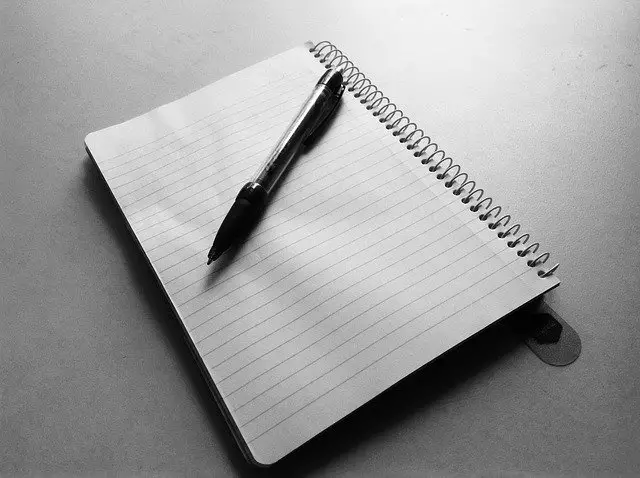
First, you need to know if your teacher wants you to write the essay in a narrative format or in a question answer format. This will affect how you organize your paper. Both essay formats need a strong introduction, an organized body and a solid conclusion. The difference is that the question and answer essay will use direct quotes with your questions. The narrative essay can have paraphrased information from the interview mixed in with direct quotes.
Writing the Informational Interview Essay
Hopefully, you took copious (many) notes during your interview and hopefully you were allowed to record the interview to catch any information that you missed in your notes. Now, you need to organize your information into a logical outline Probably the easiest way to organize all the information is to read through your notes and to listen to the recording of the interview. You need to think about what the reader would like to know about the person you interviewed. Pick three main themes or ideas that you talked about during the interview. These will become body paragraphs for your essay. Once you have wrapped your brain around the three main things you are going to talk about in your essay, you need to write out an outline.
Sample Outline
This outline will help you write a five paragraph essay for a narrative format. However, you can easily organize your question and answer format essay using this outline as well. I. Introduction Start with a humorous or interesting anecdote or fact that the person told you. Thesis statement: A thesis statement is one sentence that tells who was interviewed, his or her title, and why you interviewed the person. Basically, what do you plan to tell your reader about this person? This must be in the introduction, and you must spell the person’s name correctly. Read this article on how to write a thesis statement for more help. II. Body paragraph 1: One big idea you learned III. Body paragraph 2: Second big idea you learned IV. Body paragraph 3: Third big idea you learned V. Conclusion: You need to wrap up your essay by summarizing and writing some concluding remarks about the person.
Write the Interview Essay
Depending on the assigned length of your paper, you can write a paragraph for each Roman numeral on your outline. However, if you need to write a longer essay, you can have several paragraphs for Roman numerals II, III, and IV. You need to make sure that you put quotation marks around words that the person said, and you need to make sure that you body paragraphs support your thesis statement. Once you have a rough draft written, you need someone to peer-edit your paper. Then, you can write a final copy for your teacher. You should now be an expert on how to write an interview essay. You may need to edit and revise your essay to get a top grade, but you should understand the writing process for the interview essay.
This post is part of the series: Interviews and Essays
The following articles will help you to complete an interview and write the interview essay.
- How to Interview Someone for a Paper
- How to Write an Interview Essay

All You Need to Know About Interview Essay Writing

Purpose of Writing an Interview Essay
The writing process is not always smooth sailing. When it comes to the construction of interview papers, you are free to ask about myriads of issues of your interests and get a broad insight from the interview subject. Once you figure out the main thesis statement for your interview essay, you must collect relatable data in question-and-answer format. The gathered information is almost always subjective since the authoritative individuals and qualified experts are your main data providers. Interview essays are constructed based on people's biased opinions rather than books, historical records, and other sources.
Are you looking for answers on how to write an outline for interview essay? We are here to provide you with useful tips on how to write interview APA format essay.
You might as well find this article helpful since we have prepared essay writing in interview sample at the end of it.
Format for Writing an Interview Essay
Are you on the verge of choosing an appropriate format to write an interview essay? One of the essential steps includes identifying the type of interview paper you are willing to write. The interview essay format is determined based on the style of your paper. There are three basic types of interview papers:

- Narrative Essay Interview - Through this type of paper, you are assigned to research a specific topic based on the conducted interview. The main thing is to accumulate all the information that the interviewed person has provided in a neat and organized manner in the form of a narrative. The story might be written from your perspective or that of the interviewee. In that case, you are free to write in the first and second person.
- Personal Interview - Such type of paper demands you to prepare a list of witty interview questions to ask a specific person who holds a certain type of authority based on their professional occupation. The final product turns out to be an interview in essay format.
- Question-answer Interview - Such interview questions are often asked to job seekers. This is your chance to glance through the common interview questions that the hiring managers will ask you to get a glimpse of your personality and career goals. The questions and answers can be combined in an interview paper. For more information, check out internship interview questions and answers here.

How to Write an Outline for Interview Essay
After you have chosen key points for your interview paper and adjusted its format accordingly, you might wonder, 'should I write an outline for an interview essay ?'. The answer is clear and direct - 'Yes, definitely!'
Good writers always prepare an outline in advance, which is a great tip to lift the burden of the time-consuming paper writing process. The basic structure of interview essay outline includes three major parts:

- Introduction - As you state your paper's thesis statement, you can start writing by introducing the person or the people you interviewed.
- Body Paragraphs - The following paragraphs should contain the subjective points of view that your interviewees provided concerning your major thesis statement.
- Conclusion - In the concluding paragraph of the essay, restate the paper's main goal and summarize the most important points you have made so far.
Writing an Interview Essay Introduction
Once you wrap up the interview essay, outline you are ready to start the writing process. Writing a catchy lead and grabbing a reader's attention right away is not a simple task. However, there are some key elements that make up the best of the introduction part of your interview essay. The primary sentence should briefly contain the main objective behind the chosen topic of the paper. The following sentences should report the importance of your essay topic to your target audience. Finally, you can proceed with the thesis statement, which indicates the basic value of your paper. In other words, try to answer the question of what benefits the reader gets from familiarizing themself with your interview paper.
Do not hesitate to ask us to write an essay for me whether you are assigned to construct an interview essay on writing or any other given subject.
Writing an Interview Essay Body Paragraphs
The body paragraphs hold the majority of the essay. Provided paragraphs support the central statement with relatable facts, details, and key points as the answers that an interviewer asks.
Some of the interviewers prefer to use a recording device, while others opt for notes to contain the important data in its entirety. They choose to include parts of the narrative later in the body paragraphs of the essay as they gather the most important and thematic points made throughout the interview process. You might as well include direct quotes or in-text citations as the sources of provided answers. However, always keep in mind to ask for written permission if you plan to paraphrase or directly copy their ideas word by word according to the issue of your interest.
Writing an interview essay can be hard, so if you are looking for further tips on how to write an essay , we can provide you with an interview essay outline example as well as the complete paper itself.
Writing an Interview Essay Conclusion
The classic format for writing an interview essay includes jotting down the main objectives made throughout the paper in a final paragraph, otherwise known as the conclusion. The last paragraph is not any less important compared to the opening one. That is why you should try and restate the crucial points that interviewees have made while answering questions provided by you. That way, you will sound even more persuasive as you provide evident arguments supported by powerful public figures regarded as influential in society.
You are welcome to conclude the essay with a respectful thank you note as well. Express sincere gratification to the reader for taking the time to read your essay and focus on your contribution to them with the source of information contained in the written interview paper.
If you don’t have distinguished skills for writing an outline for college interview essay, our experts have your back! Contact us to write papers for money and enjoy a perfectly-crafted assignment.
Essay Writing Topics in Interview
Looking for inspiration? Researching an interesting topic for the essay can be exhausting sometimes. But we are here to give you a helping hand through tough times. Our experts have gathered some of the most compelling essay writing topics in interview. You are free to take a look at them and choose one that satisfies your curiosity and challenges you to be analyzed in depth.
- Does body language describe our mental state?
- How important is eye contact for establishing genuine connections?
- Are educated and qualified people obliged to give more to others?
- Which job position is the most attractive in the 21st century?
- Do career services help people get to their target job market?
- Does conflict resolution hold an important place in the contemporary world?
- What is love, and where do you feel it or experience it most often?
- How do our family heritage and traditions influence our personalities?
- How many hours of sleep are needed at different stages of life?
- What kind of skills is essential to possess in order to become a good leader?
- Should the tax system be allocated to the rich and poor accordingly?
- Is the two-party system the guarantee of American democracy in the US?
- Should combatting racism be an individual responsibility?
- Should the American people restrict the amount of money spent on the electoral college?
- How do relationships and friendships shape our lives?
- Do your dreams and nightmares reflect real-life events?
- How do you keep yourself from getting sick?
- Does technology make your daily life easier?
- Do you agree or disagree with the idea that opposites attract?
- What does it mean to be a religious and faithful person to you?
We hope those mentioned above, as well as other essay writing topics for interview in google, will fuel your curiosity.
Meanwhile, you can always pay for papers . Our experts are capable of writing an essay for a job interview based on your individual demands that will get you closer to your dream position.
Interview Essay Writing Examples
Here is one of the interview essay writing examples to check out. We hope that the provided example will give you some kind of perspective:
'A LEADER IS ONE WHO KNOWS THE WAY, GOES THE WAY, AND SHOWS THE WAY'
According to the popular idea, leaders are born rather than made. Contrary to this belief, many real-life examples prove that people can grow into a leader type as they grow older if they want to. Any man can be a leader, but it is not an easy thing to do. You need to know yourself to set an example for others, inspire them, and give them a sense of trust to follow your steps. People are inclined toward those who know where they are going, have their own vision, and are educated enough to support their decisions with rational arguments. These traits give leaders the power to be persuasive. They have their goals set and are not afraid to firmly face any challenges that life might throw their way.
To support this statement, we have interviewed a Pakistani female education activist, Malala Yousafzai, who also carries the honor of being the 2014 Nobel Peace Prize laureate. She is a pure example of how one can rise from any kind of social and domestic circumstances if one has a vision and works hard enough to achieve their goals. She realized the value of education from a very young age. The latter was often inaccessible for girls of her nation due to authoritative powers in the head of the government, under which education was banned for almost all the females in the Northern Pakistani region. Malala persistently fought for her truth and raised awareness about the value that educating girls and boys could hold. She began writing articles and her personal insights anonymously to describe the intolerable circumstances that females had to face under the group of dictators, highlighting the purpose of education and its unavailability for girls of Pakistan.
Malala's example is one of a kind. She wants to be remembered as a girl who tries to help others in whatever capacity she can hold. She did everything possible to let the outer world know about the injustice that the government of her nation committed. She never backed down even after the confrontation between her and the representatives of the ruling power at the head of the Pakistani government.
Further Academic Help
We hope you gained some beneficial information throughout this article which will help you craft a top-notch interview essay for your journalism class. In case of further assistance, our expert writers are here to provide you with interview essay examples APA format at our paper service platform.
Before you go, you are welcome to take an essay writing test for interview to check how well you understood the concept of the article and implement gained knowledge into your upcoming assignment.
Frequently asked questions
She was flawless! first time using a website like this, I've ordered article review and i totally adored it! grammar punctuation, content - everything was on point
This writer is my go to, because whenever I need someone who I can trust my task to - I hire Joy. She wrote almost every paper for me for the last 2 years
Term paper done up to a highest standard, no revisions, perfect communication. 10s across the board!!!!!!!
I send him instructions and that's it. my paper was done 10 hours later, no stupid questions, he nailed it.
Sometimes I wonder if Michael is secretly a professor because he literally knows everything. HE DID SO WELL THAT MY PROF SHOWED MY PAPER AS AN EXAMPLE. unbelievable, many thanks

New Posts to Your Inbox!
Stay in touch

Job Interview Essay
Job interview essay generator.

As one would expect during a job interview, your employer may be asking you to write something . This would be in the form of an essay. This is usually about your experiences, your skills and all the basic information they need to know more about you. They do this to see and to understand you as a person. Here are some 7+ job interview essay examples you can check out for some tips on what to write and what to avoid.
7+ Job Interview Essay Examples
1. job interview essay template.
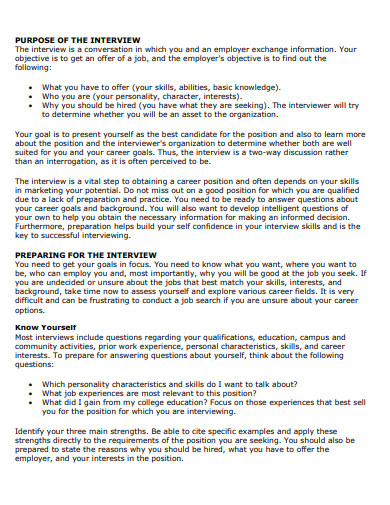
Size: 95 KB
2. Sample Job Interview Essay
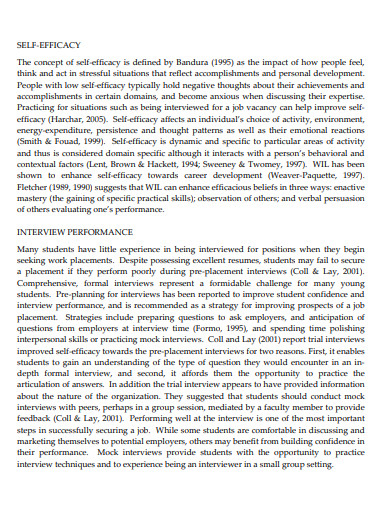
Size: 430 KB
3. Basic Job Interview Essay
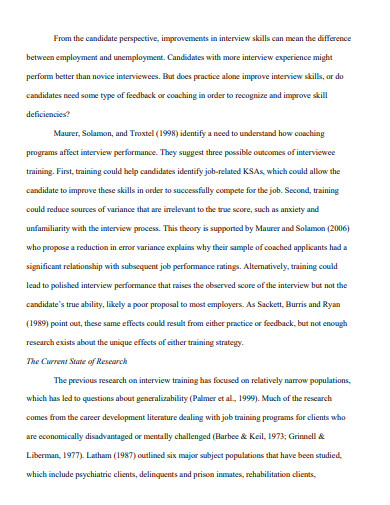
Size: 573 KB
4. Job Interview Question Database Essay
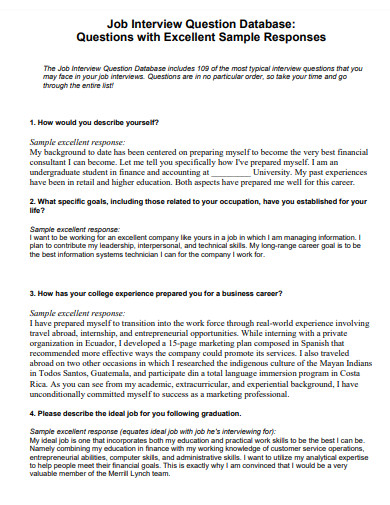
Size: 90 KB
5. Job Interview Essay in PDF
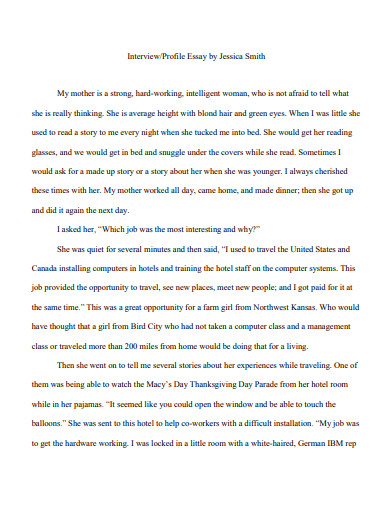
Size: 75 KB
6. Printable Job Interview Essay
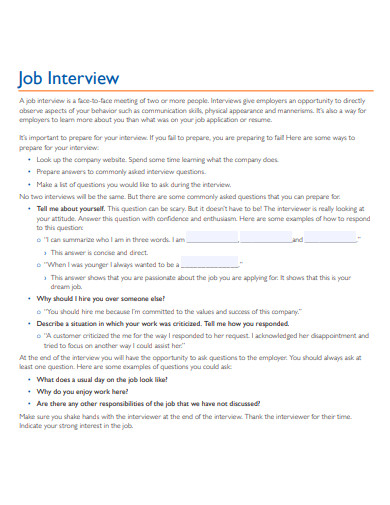
Size: 66 KB
7. Job Interview Strategy Essay
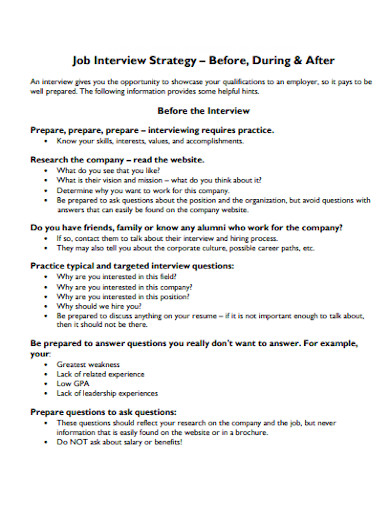
Size: 150 KB
8. Formal Job Interview Essay
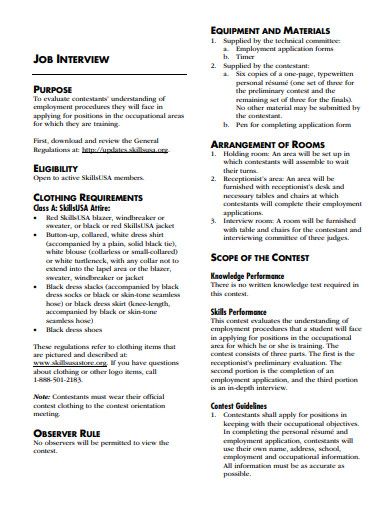
Size: 192 KB
Define Interview
An interview is a meeting face to face. It is usually a conventional conference . A conversation or a questioning for the purpose of getting information from the interviewee.
Define Job Interview
A job interview is a dialogue between an employer and the applicant. In a job interview, the employer asks questions about the applicant’s work history, educational history, and skills.
Things to Avoid in Writing a Job Interview Essay
Some of us get so excited when writing essays, like that of a job interview, but one thing we must remember is to summarize the job interview essay We often forget that an essay is nothing but a short summary of what we wish to write. But that’s okay. It’s nothing different. But unlike some of the essays you may be used to, there are some things to avoid when writing for a job interview essay. Here are some of the things you need to avoid at all cost.
- Lying about your answers – when writing about what is asked, be careful. Interview questions in an essay may be tricky. Do not make up anything to make your essay sound nice. The interviewer would not be amazed one bit if you lied in your essay. Rather, there is a bigger chance they will not accept you.
- Flowery words – Most of us are guilty with this when writing the essay. It is best to avoid putting flowery words to make it sound like we did these things. Again, your employer has a way of knowing you are being truthful or lying. Avoid this at all costs.
- Too proud – this is often taken for granted but I want to put it right here. Do not boast about the experiences you may not have and write it off as yours. Do not boast about the experiences you have in your essay. You have to remain open and humble.
Things You Should Remember When Writing an Essay
- Voice – keep it professional. The tone in your essay has to be in a professional setting. If you write in a childish manner or as if you are angry at someone, your employer or anyone reading it will surely see that you are not fit for the job.
- Information – write what is asked in the essay. Do not put any other information that is not required nor needed. Example for this information is through a question that goes like this “why should we hire you?” This may sound easy but be very careful as to what you are going to write or say. Do not forget to introduce yourself in your essay.
- Explaining – In some questions in an essay, you are required to explain. Like the sample question above, you must give an explanation in your own words as to why they should hire you. However, avoid saying explanations like “because I am the best”, “I am better than anyone.” This will not only make you lose your opportunity, it is also very rude to tell that to your employer.
- Descriptive – keep your essay as descriptive as possible . When you are to general in your writing, you are making the person reading confused. Put a little effort to what you are writing.
- Be prepared – when you are going to a job interview, always expect the unexpected. Answer questions as honest as possible.
- Reflect – reflect on what you have written . Understand what you have learned and done. A job interview essay is simply one of many essays you are going to go through.
I want to write about my experiences related to the job, should I write down everything?
Yes you may. As long as you remember that what you are writing is true and correct. As well as be careful on how you word it. Your tone in writing should be professional.
Why am I not allowed to show off my skills in my essay?
Employers are interested in what you have, but they are not interested in the way you talk about it. They prefer to see someone professional talking about their experiences in the same professional tone. Rather than being too cocky.
Is it necessary to know your skills? What if I don’t?
It is better to know what you are good at. When your employer may state you need to write your skills in the essay, you have to be prepared to do so. Ask yourself what you are good at and write it down.
Is there a time limit to writing the essay?
Most companies give a certain amount of time for the applicant to finish the job interview essay. This is so that neither of the two parties are wasting time. Be prepared to write a good essay within a limited amount of time.
Writing a job interview essay can be difficult. It can also be rewarding knowing you did a good job and you have done what you were told to do. Though a job interview essay may not give you the outcome of getting that job, but it is good practice on showing off your skills. Once you find out how to write a good essay for a job interview, all you need to do is to remember the guidelines.
To remember not to be too cocky when writing about your experiences. Do not be too shy either, rather be professional about it. Employers do read your essay, so be careful what you write. Watch your grammar and how you word things as well. This can affect the opportunity of getting that job. With all that being said, I wish you luck.
Text prompt
- Instructive
- Professional
Describe your preparation process for a job interview in your Job Interview Essay.
Reflect on a successful job interview experience in your Job Interview Essay.
All Formats
Essay Templates
- 20+ Interview Essay Templates
An interview essay is a simple form of writing that relays the information being gathered through an interview essay template . It is done to make the readers knowledgeable of the items discussed during the interview process. This type of essay allows the writer to relay his or her impressions on the interview that occurred and the precise data from the interview.
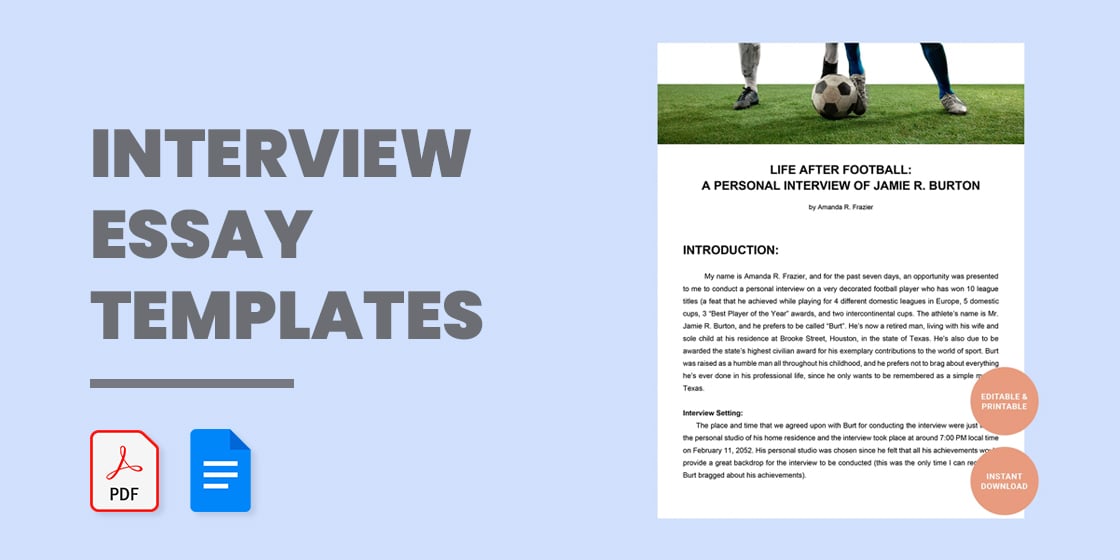
Student Interview Essay Template
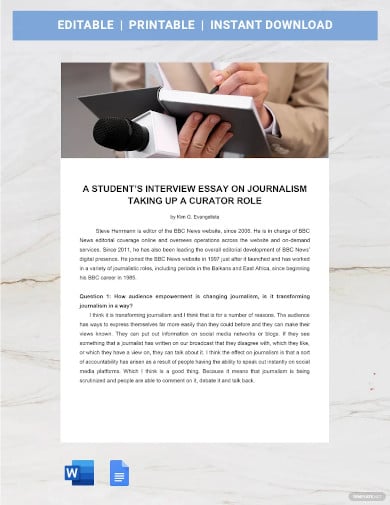
- Google Docs
Family Interview Essay Template
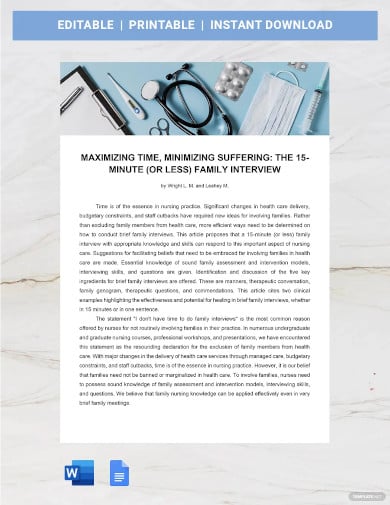
Personal Interview Essay Template
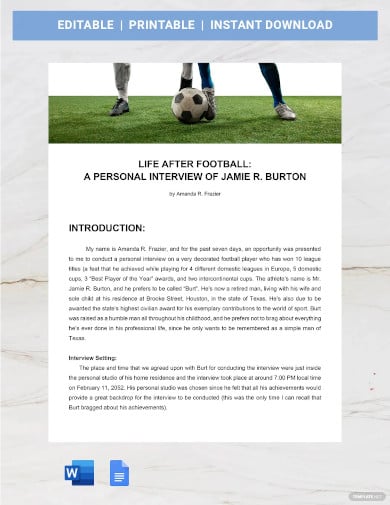
Interview Essay Sample Template
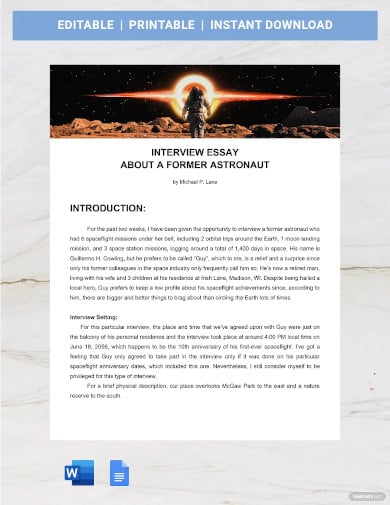
Job Interview Essay Template

Informational Interview Essay Template
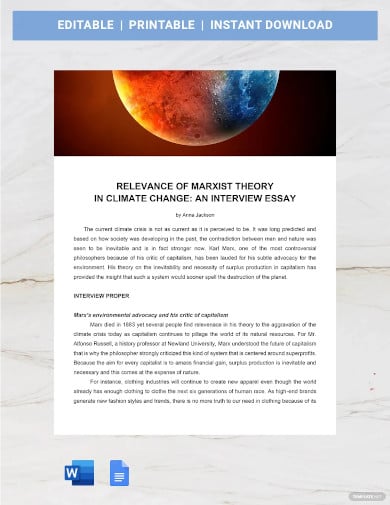
Leadership Interview Essay Template
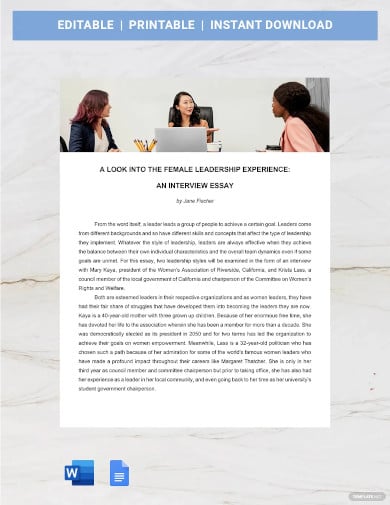
Free Interview Essay Example Template
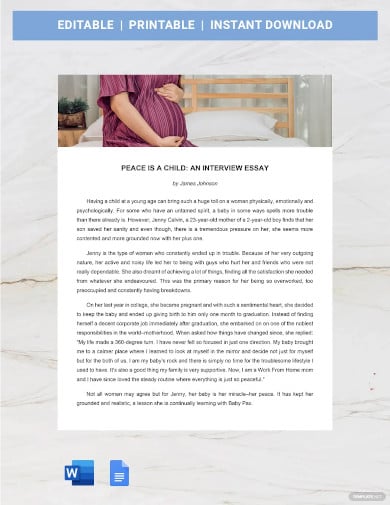
Teacher Interview Essay Template
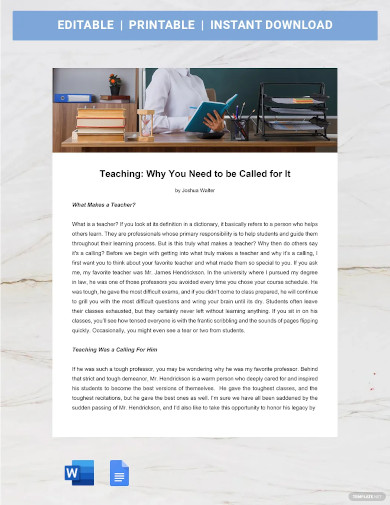
Nursing Interview Essay Template
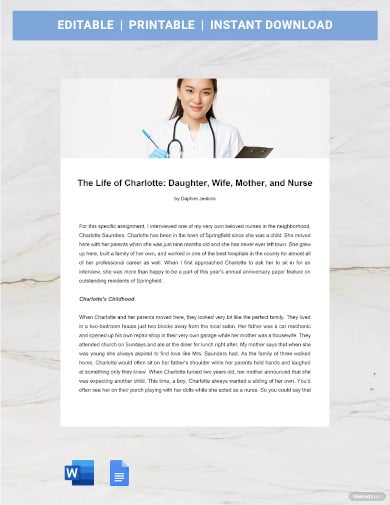
Interview and Writing Essay Assignment
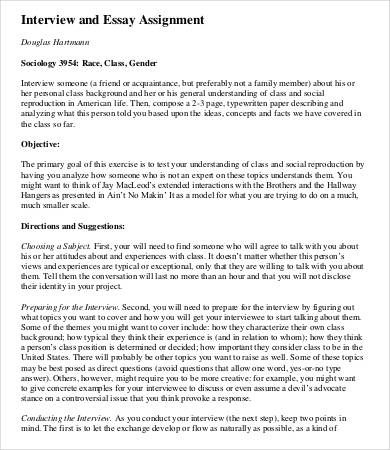
Interview Reflective Paragraph Essay
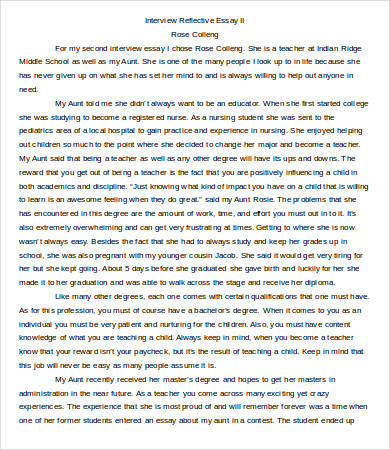
Free High School Interview Essay Sample
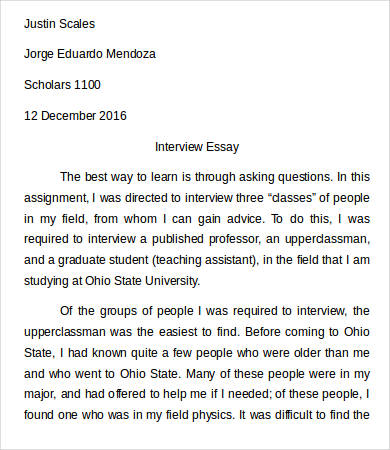
Personal Career Interview Case Study Essay
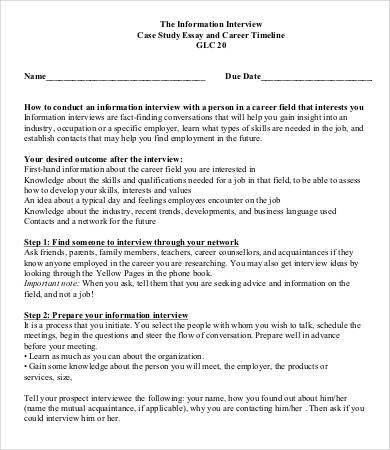
Sample College Narrative Interview Essay
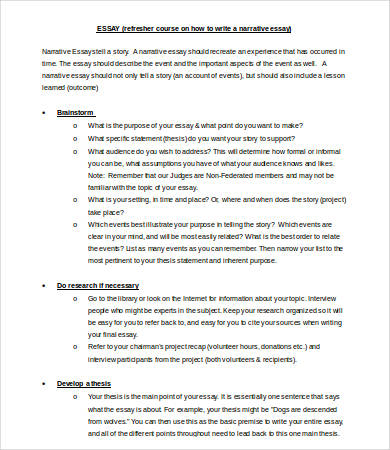
Extended Definition Essay with Interview Paper
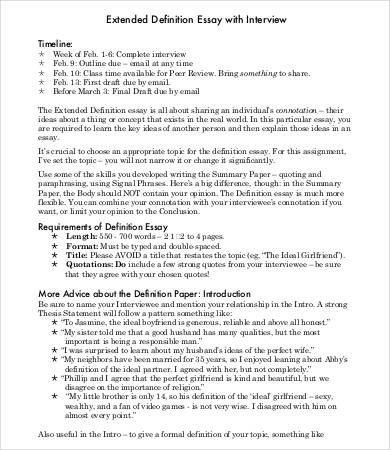
Professional Student Interview Essay Template
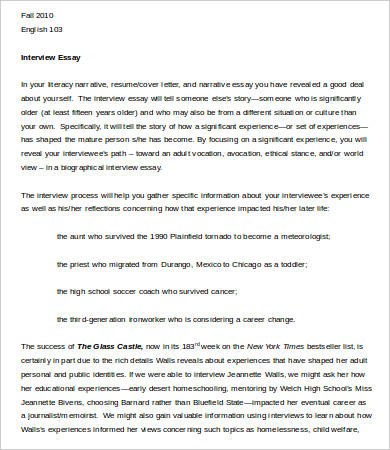
The Process of Creating an Interview Essay
- Think first of the topic that you want to write about. This will serve as your guide on selecting the person that you want to interview.
- Know the purpose of your essay. If you think that interviewing just one person is enough, then it will already do good to Word interview one. It also varies on the mood that you want your writing to have.
- Prepare interview questions. Base your questions on your chosen topic so you can already have a guideline on what to ask. With this, you can already create a structure for your essay as you already have an idea of what is going to be in it. An information Sheet will just vary depending on the answers of your interviewee.
- Quoting your interviewer. If you want to quote the interviewee in some parts of your essay, make sure to write the precise sample statement that he or she has said during the interview. If you cannot write at a fast pace, using an audio-recording device to record the entire interview with the permission of the PDF interviewee is of great help.
- Prepare for the essay. After the interview, construct your thoughts and create a flow of ideas where you can insert the items being answered during the interview.
- Start writing your interview essay and make sure that you are following the pattern that you have created for a cohesive thought pre-construction .
Interview Essays with Journalists and Politicians
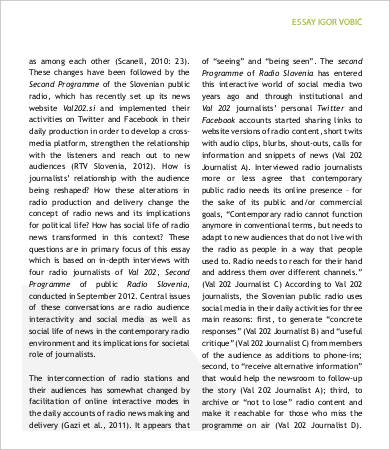
Job Interview Essay Report with Introduction
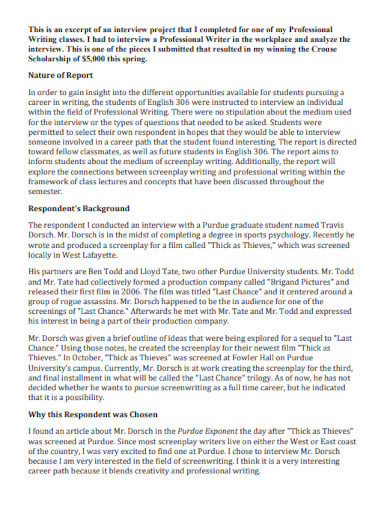
Interview Essay with APA Documentation Style
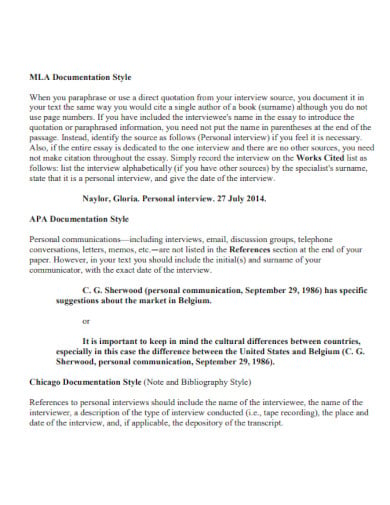
Leadership Interview Reflective Essay
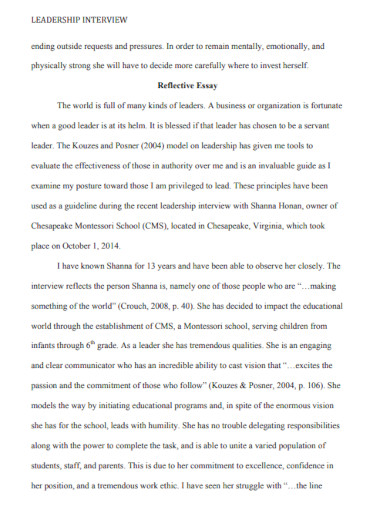
Capture the Attention of Your Readers
More in essay templates.
Personal Career Case Study Interview Essay Template
Job interview essay report with introduction template, reflective interview essay template, reflective leadership interview essay template, high school interview essay template, extended definition essay with interview template, interview essay with journalists and politicians template, interview and writing essay assignment template.
- How to Make/Create a College Essay [Templates + Examples] 2023
- How to Make/Create a Rhetorical Analysis Essay [Templates + Examples] 2023
- 5+ Free Descriptive Essay Templates – PDF
- 15+ Essay Format Templates – PDF
- 11+ Free Descriptive Essay Templates – PDF, DOC
- 19+ Essay Templates in PDF
- How to Make/Create a Narrative Essay [Templates + Examples] 2023
- 14+ 5 Paragraph Essay Templates – PDF
- How To Make/Create a 5-Paragraph Essay Outline [Templates + Examples] 2023
- 10+ Argumentative Essay Outline Templates – PDF
- 9+ Leadership Essays
- 13+ Literary Essay Templates in Word | Google Docs | Apple Pages | PDF
- 7+ Extended Essay Templates
- 9+ Free Downloadable Informative Essay Samples and Examples
File Formats
Word templates, google docs templates, excel templates, powerpoint templates, google sheets templates, google slides templates, pdf templates, publisher templates, psd templates, indesign templates, illustrator templates, pages templates, keynote templates, numbers templates, outlook templates.
- X (Twitter)
How to Write an Interview Essay Introduction

If you’re looking for freelance essay writers for hire , you’ll want to know what a good interview essay introduction looks like so you can judge the quality of their work. An essay introduction can be tricky to get right, but if it’s written well, it can really pull the reader in and help set the tone for the rest of the essay.
But before we dive into how to do it right, let’s briefly touch upon what an interview essay really is.
What Is an Interview Essay?
At its core, an interview essay is an essay that explores different perspectives of people on a given topic. Unlike other types of essays, such as argumentative or persuasive essays, an interview essay doesn’t try to win over the reader to one particular point of view. Instead, it allows the reader to better understand the views of those who are interviewed by providing first-hand accounts of their experiences.
When contemplating what makes an essay good , writing an effective essay introduction is of the utmost importance–so let’s take a look at what to include in your introduction.
What Should I Include in an Interview Essay Introduction?
There are a few key elements that should ideally be included in any good interview essay introduction. First, you’ll want to introduce the person or people you interviewed. This can be done by providing a brief overview of who they are and why you decided to interview them. Next, you’ll want to include a thesis statement. This is a sentence or two that sums up the main point of your essay. It should be clear and concise, and it should give the reader an idea of what they can expect to learn from reading your essay.
Finally, you’ll want to conclude your introduction with a brief sentence or two that will leave the reader wanting more. This can be done by providing some of the information you’ll be discussing in the body of the essay, or by asking a question that will pique the reader’s curiosity. There are a few things you can do to spice up your interview essay introduction, which is what we’ll discuss next.
How to Make Your Interview Essay Introduction More Interesting
Start with a bang.
This means starting with something that will immediately grab the reader’s attention and make them want to keep reading. One way to do this is to start with a shocking statistic or fact related to your topic. For example, if you’re writing an interview essay about poverty in America, you could start with the fact that a certain number of Americans live in poverty–this would certainly get the reader’s attention and make them want to learn more about what you have to say.
Use a Quote
Another great way to start an essay is with a quote from someone who is knowledgeable about your topic. This could be an expert on the subject or even someone who has first-hand experience with it. Either way, their words will carry a lot of weight and help set the tone for your essay.
Ask a Question
Asking a question in your introduction can be a great way to get the reader thinking about your topic. This will help engage them and get them invested in what you have to say.
Use Humor
If used correctly, humor can be a great way to engage the reader and get them interested in your essay. Just be careful not to overdo it, as too much humor can be a turn-off for some readers.
A Solid Interview Essay Introduction
Now that we’ve discussed what to include in your introduction, let’s take a look at an example of a good interview essay introduction:
“In today’s society, it’s easy to get lost in the shuffle. We’re all so busy working and taking care of our families that we often don’t have time for ourselves. This can lead to feeling stressed, overwhelmed, and even angry. But what if there was a way to reduce the amount of stress in our lives?
That’s where yoga comes in. Yoga is an ancient practice that has been shown to provide numerous health benefits, including reducing stress levels. In fact, a recent study found that yoga can be just as effective as medication in treating anxiety and depression.
To determine whether yoga can really help reduce stress in our lives, I decided to interview yoga instructor Jenny Miller. Jenny has been teaching yoga for more than ten years and has helped countless people find relief from stress and anxiety. She was kind enough to agree to answer a few questions about her experience with yoga and how it can help reduce stress.”
From interview essay writers to MetaTrader programmers , Guru has the expert you need for your projects.

What Makes an Essay Good?

Why Drupal Is Better Than WordPress
Related posts, what are the roles of support personnel, what is remote customer service, what does a customer support agent do, write a comment cancel reply.
Save my name & email for next time.
- How Guru Works
- Work Agreements
Type above and press Enter to search. Press Esc to cancel.
Download Interview guide PDF
Dbms interview questions, download pdf.
To consolidate your knowledge and concepts in DBMS , here we've listed the most commonly asked DBMS interview questions to help you ace your interview!
We have classified them into the following sections:
DBMS Basic Interview Questions
Intermediate dbms interview questions, advanced dbms interview questions, 1. what is dbms and what is its utility explain rdbms with examples..
DBMS stands for Database Management System , is a set of applications or programs that enable users to create and maintain a database. DBMS provides a tool or an interface for performing various operations such as inserting, deleting, updating, etc. into a database. It is software that enables the storage of data more compactly and securely as compared to a file-based system. A DBMS system helps a user to overcome problems like data inconsistency, data redundancy, etc. in a database and makes it more convenient and organized to use it. Check this DBMS Tutorial by Scaler Topics .
Examples of popular DBMS systems are file systems, XML, Windows Registry, etc.

RDBMS stands for Relational Database Management System and was introduced in the 1970s to access and store data more efficiently than DBMS. RDBMS stores data in the form of tables as compared to DBMS which stores data as files. Storing data as rows and columns makes it easier to locate specific values in the database and makes it more efficient as compared to DBMS.
Examples of popular RDBMS systems are MySQL, Oracle DB, etc.
2. What is a Database?
A Database is an organized, consistent, and logical collection of data that can easily be updated, accessed, and managed. Database mostly contains sets of tables or objects (anything created using create command is a database object) which consist of records and fields. A tuple or a row represents a single entry in a table. An attribute or a column represents the basic units of data storage, which contain information about a particular aspect of the table. DBMS extracts data from a database in the form of queries given by the user.
3. Mention the issues with traditional file-based systems that make DBMS a better choice?
The absence of indexing in a traditional file-based system leaves us with the only option of scanning the full page and hence making the access of content tedious and super slow. The other issue is redundancy and inconsistency as files have many duplicate and redundant data and changing one of them makes all of them inconsistent. Accessing data is harder in traditional file-based systems because data is unorganized in them.
Another issue is the lack of concurrency control, which leads to one operation locking the entire page, as compared to DBMS where multiple operations can work on a single file simultaneously.
Integrity check, data isolation, atomicity, security, etc. are some other issues with traditional file-based systems for which DBMSs have provided some good solutions.
4. Explain a few advantages of a DBMS.
Following are the few advantages of using a DBMS .

- Data Sharing: Data from a single database can be simultaneously shared by multiple users. Such sharing also enables end-users to react to changes quickly in the database environment.
- Integrity constraints: The existence of such constraints allows storing of data in an organized and refined manner.
- Controlling redundancy in a database: Eliminates redundancy in a database by providing a mechanism that integrates all the data in a single database.
- Data Independence: This allows changing the data structure without altering the composition of any of the executing application programs.
- Provides backup and recovery facility: It can be configured to automatically create the backup of the data and restore the data in the database whenever required.
- Data Security: DBMS provides the necessary tools to make the storage and transfer of data more reliable and secure. Authentication (the process of giving restricted access to a user) and encryption (encrypting sensitive data such as OTP, credit card information, etc.) are some popular tools used to secure data in a DBMS.
5. Explain different languages present in DBMS.
Following are various languages present in DBMS:
- DDL(Data Definition Language): It contains commands which are required to define the database. E.g., CREATE, ALTER, DROP, TRUNCATE, RENAME, etc.
- DML(Data Manipulation Language): It contains commands which are required to manipulate the data present in the database. E.g., SELECT, UPDATE, INSERT, DELETE, etc.
- DCL(Data Control Language): It contains commands which are required to deal with the user permissions and controls of the database system. E.g., GRANT and REVOKE.
- TCL(Transaction Control Language): It contains commands which are required to deal with the transaction of the database. E.g., COMMIT, ROLLBACK, and SAVEPOINT.
Learn via our Video Courses
6. what is meant by acid properties in dbms.
ACID stands for Atomicity, Consistency, Isolation, and Durability in a DBMS these are those properties that ensure a safe and secure way of sharing data among multiple users.

- Atomicity : This property reflects the concept of either executing the whole query or executing nothing at all, which implies that if an update occurs in a database then that update should either be reflected in the whole database or should not be reflected at all.

- Consistency: This property ensures that the data remains consistent before and after a transaction in a database.

- Isolation: This property ensures that each transaction is occurring independently of the others. This implies that the state of an ongoing transaction doesn’t affect the state of another ongoing transaction.

- Durability: This property ensures that the data is not lost in cases of a system failure or restart and is present in the same state as it was before the system failure or restart.
7. Are NULL values in a database the same as that of blank space or zero?
No, a NULL value is very different from that of zero and blank space as it represents a value that is assigned, unknown, unavailable, or not applicable as compared to blank space which represents a character and zero represents a number.
Example: NULL value in “number_of_courses” taken by a student represents that its value is unknown whereas 0 in it means that the student hasn’t taken any courses.
1. What is meant by an entity-relationship (E-R) model? Explain the terms Entity, Entity Type, and Entity Set in DBMS.
An entity-relationship model is a diagrammatic approach to a database design where real-world objects are represented as entities and relationships between them are mentioned.

- Entity: An entity is defined as a real-world object having attributes that represent characteristics of that particular object. For example, a student, an employee, or a teacher represents an entity.
- Entity Type: An entity type is defined as a collection of entities that have the same attributes. One or more related tables in a database represent an entity type. Entity type or attributes can be understood as a characteristic which uniquely identifies the entity. For example, a student represents an entity that has attributes such as student_id, student_name, etc.
- Entity Set: An entity set can be defined as a set of all the entities present in a specific entity type in a database. For example, a set of all the students, employees, teachers, etc. represent an entity set.
2. What is meant by normalization and denormalization?
Normalization is a process of reducing redundancy by organizing the data into multiple tables. Normalization leads to better usage of disk spaces and makes it easier to maintain the integrity of the database.
Denormalization is the reverse process of normalization as it combines the tables which have been normalized into a single table so that data retrieval becomes faster. JOIN operation allows us to create a denormalized form of the data by reversing the normalization.
3. What is a lock. Explain the major difference between a shared lock and an exclusive lock during a transaction in a database.
A database lock is a mechanism to protect a shared piece of data from getting updated by two or more database users at the same time. When a single database user or session has acquired a lock then no other database user or session can modify that data until the lock is released.
- Shared Lock: A shared lock is required for reading a data item and many transactions may hold a lock on the same data item in a shared lock. Multiple transactions are allowed to read the data items in a shared lock.
- Exclusive lock: An exclusive lock is a lock on any transaction that is about to perform a write operation. This type of lock doesn’t allow more than one transaction and hence prevents any inconsistency in the database.
4. Explain the difference between the DELETE and TRUNCATE command in a DBMS.
DELETE command: this command is needed to delete rows from a table based on the condition provided by the WHERE clause.
- It deletes only the rows which are specified by the WHERE clause.
- It can be rolled back if required.
- It maintains a log to lock the row of the table before deleting it and hence it’s slow.
TRUNCATE command: this command is needed to remove complete data from a table in a database. It is like a DELETE command which has no WHERE clause.
- It removes complete data from a table in a database.
- It can't be rolled back even if required. ( truncate can be rolled back in some databases depending on their version but it can be tricky and can lead to data loss). Check this link for more details
- It doesn’t maintain a log and deletes the whole table at once and hence it’s fast.
5. Explain the difference between intension and extension in a database.
Following is the major difference between intension and extension in a database:
- Intension: Intension or popularly known as database schema is used to define the description of the database and is specified during the design of the database and mostly remains unchanged.
- Extension: Extension on the other hand is the measure of the number of tuples present in the database at any given point in time. The extension of a database is also referred to as the snapshot of the database and its value keeps changing as and when the tuples are created, updated, or destroyed in a database.
6. Explain different types of relationships amongst tables in a DBMS.
Following are different types of relationship amongst tables in a DBMS system:
- One to One Relationship: This type of relationship is applied when a particular row in table X is linked to a singular row in table Y.

- One to Many Relationship: This type of relationship is applied when a single row in table X is related to many rows in table Y.

- Many to Many Relationship: This type of relationship is applied when multiple rows in table X can be linked to multiple rows in table Y.

- Self Referencing Relationship: This type of relationship is applied when a particular row in table X is associated with the same table.

7. Explain different levels of data abstraction in a DBMS.
The process of hiding irrelevant details from users is known as data abstraction. Data abstraction can be divided into 3 levels:

- Physical Level: it is the lowest level and is managed by DBMS. This level consists of data storage descriptions and the details of this level are typically hidden from system admins, developers, and users.
- Conceptual or Logical level: it is the level on which developers and system admins work and it determines what data is stored in the database and what is the relationship between the data points.
- External or View level: it is the level that describes only part of the database and hides the details of the table schema and its physical storage from the users. The result of a query is an example of View level data abstraction. A view is a virtual table created by selecting fields from one or more tables present in the database.
8. What is Data Warehousing?
The process of collecting, extracting, transforming, and loading data from multiple sources and storing them in one database is known as data warehousing . A data warehouse can be considered as a central repository where data flows from transactional systems and other relational databases and is used for data analytics. A data warehouse comprises a wide variety of an organization’s historical data that supports the decision-making process in an organization.

1. Explain the difference between a 2-tier and 3-tier architecture in a DBMS.
The 2-tier architecture refers to the client-server architecture in which applications at the client end directly communicate with the database at the server end without any middleware involved. Example – Contact Management System created using MS-Access or Railway Reservation System, etc.

The above picture represents a 2-tier architecture in a DBMS.
The 3-tier architecture contains another layer between the client and the server to provide GUI to the users and make the system much more secure and accessible. In this type of architecture, the application present on the client end interacts with an application on the server end which further communicates with the database system.
Example – Designing registration form which contains a text box, label, button or a large website on the Internet, etc.

The above picture represents a 3-tier architecture in a DBMS.
Recommended Tutorials:
- DBMS MCQ with Answers
- DBMS Architecture
- Top Applications of DBMS
- SQL Interview Questions
- SQL Server Interview Questions
- SQL Queries Interview Questions
- MySQL Interview Questions
- MongoDB Interview Questions
- PL SQL Interview Questions
- Database Testing Interview Questions
- File System vs DBMS
- Interview Preparation Guide
2. Explain different types of keys in a database.
There are mainly 7 types of keys in a database:
- Candidate Key: The candidate key represents a set of properties that can uniquely identify a table. Each table may have multiple candidate keys. One key amongst all candidate keys can be chosen as a primary key. In the below example since studentId and firstName can be considered as a Candidate Key since they can uniquely identify every tuple.
- Super Key: The super key defines a set of attributes that can uniquely identify a tuple. Candidate key and primary key are subsets of the super key, in other words, the super key is their superset.

- Primary Key: The primary key defines a set of attributes that are used to uniquely identify every tuple. In the below example studentId and firstName are candidate keys and any one of them can be chosen as a Primary Key. In the given example studentId is chosen as the primary key for the student table.
- Unique Key: The unique key is very similar to the primary key except that primary keys don’t allow NULL values in the column but unique keys allow them. So essentially unique keys are primary keys with NULL values.
- Alternate Key: All the candidate keys which are not chosen as primary keys are considered as alternate Keys. In the below example, firstname and lastname are alternate keys in the database.
- Foreign Key: The foreign key defines an attribute that can only take the values present in one table common to the attribute present in another table. In the below example courseId from the Student table is a foreign key to the Course table, as both, the tables contain courseId as one of their attributes.
- Composite Key: A composite key refers to a combination of two or more columns that can uniquely identify each tuple in a table. In the below example the studentId and firstname can be grouped to uniquely identify every tuple in the table.

3. Explain different types of Normalization forms in a DBMS.
Following are the major normalization forms in a DBMS:

Considering the above Table-1 as the reference example for understanding different normalization forms.
- Every column must have a single value and should be atomic.
- Duplicate columns from the same table should be removed.
- Separate tables should be created for each group of related data and each row should be identified with a unique column.

Table-1 converted to 1NF form
- The table should be in its 1NF i.e. satisfy all the conditions of 1NF.
- Every non-prime attribute of the table should be fully functionally dependent on the primary key i.e. every non-key attribute should be dependent on the primary key in such a way that if any key element is deleted then even the non_key element will be saved in the database.

Breaking Table-1 into 2 different tables to move it to 2NF.
- The table should be in its 2NF i.e. satisfy all the conditions of 2NF.
- There is no transitive functional dependency of one attribute on any attribute in the same table.

Breaking Table-1 into 3 different tables to move it to 3NF.
- The table should be in its 3NF i.e. satisfy all the conditions of 3NF.
- For every functional dependency of any attribute A on B (A->B), A should be the super key of the table. It simply implies that A can’t be a non-prime attribute if B is a prime attribute.
A record in a relational DBMS is also known as:
What does ODBC in a database stand for:
In a DBMS, TCL means:
Which of the following does DBA stand for?
Which of the following represents a one-to-many relationship?
Which of the following contains information about the data stored in a DBMS?
An entity set is represented by what in an E-R diagram?
- Privacy Policy

- Practice Questions
- Programming
- System Design
- Fast Track Courses
- Online Interviewbit Compilers
- Online C Compiler
- Online C++ Compiler
- Online Java Compiler
- Online Javascript Compiler
- Online Python Compiler
- Interview Preparation
- Java Interview Questions
- Sql Interview Questions
- Python Interview Questions
- Javascript Interview Questions
- Angular Interview Questions
- Networking Interview Questions
- Selenium Interview Questions
- Data Structure Interview Questions
- Data Science Interview Questions
- System Design Interview Questions
- Hr Interview Questions
- Html Interview Questions
- C Interview Questions
- Amazon Interview Questions
- Facebook Interview Questions
- Google Interview Questions
- Tcs Interview Questions
- Accenture Interview Questions
- Infosys Interview Questions
- Capgemini Interview Questions
- Wipro Interview Questions
- Cognizant Interview Questions
- Deloitte Interview Questions
- Zoho Interview Questions
- Hcl Interview Questions
- Highest Paying Jobs In India
- Exciting C Projects Ideas With Source Code
- Top Java 8 Features
- Angular Vs React
- 10 Best Data Structures And Algorithms Books
- Best Full Stack Developer Courses
- Best Data Science Courses
- Python Commands List
- Data Scientist Salary
- Maximum Subarray Sum Kadane’s Algorithm
- Python Cheat Sheet
- C++ Cheat Sheet
- Javascript Cheat Sheet
- Git Cheat Sheet
- Java Cheat Sheet
- Data Structure Mcq
- C Programming Mcq
- Javascript Mcq
1 Million +

Attacks on Walz’s Military Record
By Robert Farley , D'Angelo Gore and Eugene Kiely
Posted on August 8, 2024 | Updated on August 12, 2024 | Corrected on August 9, 2024
Este artículo estará disponible en español en El Tiempo Latino .
In introducing her pick for vice presidential running mate, Kamala Harris has prominently touted Tim Walz’s 24 years of service in the Army National Guard. Now, however, GOP vice presidential nominee JD Vance and the Trump campaign are attacking Walz on his military record, accusing the Minnesota governor of “stolen valor.”
We’ll sort through the facts surrounding the three main attacks on Walz’s military record and let readers decide their merit. The claims include:
- Vance claimed that Walz “dropped out” of the National Guard when he learned his battalion was slated to be deployed to Iraq. Walz retired to focus on a run for Congress two months before his unit got official word of impending deployment, though the possibility had been rumored for months.
- Vance also accused Walz of having once claimed to have served in combat, when he did not. While advocating a ban on assault-style weapons, Walz said, “We can make sure that those weapons of war that I carried in war, is the only place where those weapons are at.” Update, Aug. 12: The Harris campaign says that Walz “misspoke.”
- The Republican National Committee has criticized Walz for misrepresenting his military rank in campaign materials. The Harris campaign website salutes Walz for “rising to the rank of Command Sergeant Major.” Walz did rise to that rank, but he retired as a master sergeant because he had not completed the requirements of a command sergeant major.
A native of West Point, Nebraska, Walz joined the Nebraska Army National Guard in April 1981, two days after his 17th birthday. When Walz and his wife moved to Minnesota in 1996, he transferred to the Minnesota National Guard, where he served in 1st Battalion, 125th Field Artillery.
“While serving in Minnesota, his military occupational specialties were 13B – a cannon crewmember who operates and maintains cannons and 13Z -field artillery senior sergeant,” according to a statement released by Army Lt. Col. Kristen Augé, the Minnesota National Guard’s state public affairs officer.
According to MPR News , Walz suffered some hearing impairment related to exposure to cannon booms during training over the years, and he underwent some corrective surgery to address it.
On Aug. 3, 2003, “Walz mobilized with the Minnesota National Guard’s 1st Battalion, 125th Field Artillery … to support Operation Enduring Freedom. The battalion supported security missions at various locations in Europe and Turkey. Governor Walz was stationed at Vicenza, Italy, during his deployment,” Augé stated. The deployment lasted about eight months.
“For 24 years I proudly wore the uniform of this nation,” Walz said at a rally in Philadelphia where he was announced as Harris’ running mate on Aug. 6. “The National Guard gave me purpose. It gave me the strength of a shared commitment to something greater than ourselves.”
Walz’s Retirement from the National Guard
In recent years, however, several of his fellow guard members have taken issue with the timing of Walz’s retirement from the National Guard in May 2005, claiming he left to avoid a deployment to Iraq.

Vance, who served a four-year active duty enlistment in the Marine Corps as a combat correspondent, serving in Iraq for six months in 2005, advanced that argument at a campaign event on Aug. 7.
“When the United States of America asked me to go to Iraq to serve my country, I did it,” Vance said. “When Tim Walz was asked by his country to go to Iraq, you know what he did? He dropped out of the Army and allowed his unit to go without him, a fact that he’s been criticized for aggressively by a lot of the people that he served with. I think it’s shameful to prepare your unit to go to Iraq, to make a promise that you’re going to follow through and then to drop out right before you actually have to go.”
In early 2005, Walz, then a high school geography teacher and football coach at Mankato West High School, decided to run for public office. In a 2009 interview Walz provided as part of the Library of Congress’ veterans oral history project, Walz said he made the decision to retire from the National Guard to “focus full time” on a run for the U.S. House of Representatives for Minnesota’s 1st Congressional District (which he ultimately won in 2006). Walz said he was “really concerned” about trying to seek public office and serve in the National Guard at the same time without running afoul of the Hatch Act , which limits political speech by federal employees, including members of the National Guard.
Federal Election Commission records show that Walz filed to run for Congress on Feb. 10, 2005.
On March 20, 2005, Walz’s campaign put out a press release titled “Walz Still Planning to Run for Congress Despite Possible Call to Duty in Iraq.”
Three days prior, the release said, “the National Guard Public Affairs Office announced a possible partial mobilization of roughly 2,000 troops from the Minnesota National Guard. … The announcement from the National Guard PAO specified that all or a portion of Walz’s battalion could be mobilized to serve in Iraq within the next two years.”
According to the release, “When asked about his possible deployment to Iraq Walz said, ‘I do not yet know if my artillery unit will be part of this mobilization and I am unable to comment further on specifics of the deployment.’ Although his tour of duty in Iraq might coincide with his campaign for Minnesota’s 1st Congressional seat, Walz is determined to stay in the race. ‘As Command Sergeant Major I have a responsibility not only to ready my battalion for Iraq, but also to serve if called on. I am dedicated to serving my country to the best of my ability, whether that is in Washington DC or in Iraq.'”
On March 23, 2005, the Pipestone County Star reported, “Detachments of the Minnesota National Guard have been ‘alerted’ of possible deployment to Iraq in mid-to-late 2006.”
“Major Kevin Olson of the Minnesota National Guard said a brigade-sized contingent of soldiers could be expected to be called to Iraq, but he was not, at this time, aware of which batteries would be called,” the story said. “All soldiers in the First Brigade combat team of the 34th Division, Minnesota National Guard, could be eligible for call-up. ‘We don’t know yet what the force is like’ he said. ‘It’s too early to speculate, if the (soldiers) do go.’
“He added: ‘We will have a major announcement if and when the alert order moves ahead.’”
ABC News spoke to Joseph Eustice, a retired command sergeant major who served with Walz, and he told the news organization this week that “he remembers Walz struggling with the timing of wanting to serve as a lawmaker but also avoiding asking for a deferment so he could do so.”
“He had a window of time,” Eustice told ABC News. “He had to decide. And in his deciding, we were not on notice to be deployed. There were rumors. There were lots of rumors, and we didn’t know where we were going until it was later that, early summer, I believe.”
Al Bonnifield, who served under Walz, also recalled Walz agonizing over the decision.
“It was a very long conversation behind closed doors,” Bonnifield told the Washington Post this week. “He was trying to decide where he could do better for soldiers, for veterans, for the country. He weighed that for a long time.”
In 2018, Bonnifield told MPR News that Walz worried in early 2005, “Would the soldier look down on him because he didn’t go with us? Would the common soldier say, ‘Hey, he didn’t go with us, he’s trying to skip out on a deployment?’ And he wasn’t. He talked with us for quite a while on that subject. He weighed that decision to run for Congress very heavy. He loved the military, he loved the guard, he loved the soldiers he worked with.”
But not all of Walz’s fellow Guard members felt that way.
In a paid letter to the West Central Tribune in Minnesota in November 2018, Thomas Behrends and Paul Herr — both retired command sergeants major in the Minnesota National Guard — wrote, “On May 16th, 2005 he [Walz] quit, leaving the 1-125th Field Artillery Battalion and its Soldiers hanging; without its senior Non-Commissioned Officer, as the battalion prepared for war. His excuse to other leaders was that he needed to retire in order to run for congress. Which is false, according to a Department of Defense Directive, he could have run and requested permission from the Secretary of Defense before entering active duty; as many reservists have.”
“For Tim Walz to abandon his fellow soldiers and quit when they needed experienced leadership most is disheartening,” they wrote. “When the nation called, he quit.”
Walz retired on May 16, 2005. Walz’s brigade received alert orders for mobilization on July 14, 2005, according to the National Guard and MPR News . The official mobilization report came the following month, and the unit mobilized and trained through the fall. It was finally deployed to Iraq in the spring of 2006.
The unit was originally scheduled to return in February 2007, but its tour was extended four months as part of President George W. Bush’s “surge” strategy , the National Guard reported. In all, the soldiers were mobilized for 22 months.
Responding to Vance’s claim that Walz retired to avoid deploying to Iraq, the Harris-Walz campaign released a statement saying, “After 24 years of military service, Governor Walz retired in 2005 and ran for Congress, where he was a tireless advocate for our men and women in uniform – and as Vice President of the United States he will continue to be a relentless champion for our veterans and military families.”
Walz on Carrying a Weapon ‘in War’
Vance also called Walz “dishonest” for a claim that Walz made in 2018 while speaking to a group about gun control.
“He made this interesting comment that the Kamala Harris campaign put out there,” Vance said, referring to a video of Walz that the Harris campaign posted to X on Aug. 6. “He said, ‘We shouldn’t allow weapons that I used in war to be on America’s streets.’ Well, I wonder, Tim Walz, when were you ever in war? What was this weapon that you carried into war given that you abandoned your unit right before they went to Iraq and he has not spent a day in a combat zone.”
In the video , Walz, who was campaigning for governor at the time, talked about pushing back on the National Rifle Association and said: “I spent 25 years in the Army and I hunt. … I’ve been voting for common sense legislation that protects the Second Amendment, but we can do background checks. We can do [Centers for Disease Control and Prevention] research. We can make sure we don’t have reciprocal carry among states. And we can make sure that those weapons of war that I carried in war, is the only place where those weapons are at.”
But, as Vance indicated, there is no evidence that Walz carried a weapon “in war.”
Update, Aug. 12: In an Aug. 10 statement to CNN, the Harris campaign told CNN that Walz “misspoke.”
“In making the case for why weapons of war should never be on our streets or in our classrooms, the Governor misspoke,” campaign spokesperson Lauren Hitt said in the statement. “He did handle weapons of war and believes strongly that only military members trained to carry those deadly weapons should have access to them.”
As we said, Augé, in her statement, said Walz’s battalion deployed “to support Operation Enduring Freedom” on Aug. 3, 2003, and “supported security missions at various locations in Europe and Turkey.” During his deployment, Walz was stationed in Vicenza, Italy, and he returned to Minnesota in April 2004, Augé said. There was no mention of Walz serving in Afghanistan, Iraq or another combat zone.
In the 2009 interview for the veterans history project, Walz said he and members of his battalion initially thought they would “shoot artillery in Afghanistan,” as they had trained to do. That didn’t happen, he said, explaining that his group ended up helping with security and training while stationed at an Army base in Vicenza.
“I think in the beginning, many of my troops were disappointed,” Walz said in the interview. “I think they felt a little guilty, many of them, that they weren’t in the fight up front as this was happening.”
In an Aug. 8 statement addressing his claim about carrying weapons “in war,” the Harris campaign noted that Walz, whose military occupational specialties included field artillery senior sergeant, “fired and trained others to use weapons of war innumerable times” in his 24 years of service.
Walz’s National Guard Rank
The Republican National Committee has criticized Walz for saying “in campaign materials that he is a former ‘Command Sergeant Major’ in the Army National Guard despite not completing the requirements to hold the rank into retirement.”
Walz’s biography on the Harris campaign website correctly says that the governor “served for 24 years” in the National Guard, “rising to the rank of Command Sergeant Major.”
Walz’s official biography on the Minnesota state website goes further, referring to the governor as “Command Sergeant Major Walz.”
“After 24 years in the Army National Guard, Command Sergeant Major Walz retired from the 1-125th Field Artillery Battalion in 2005,” the state website says.
Walz did serve as command sergeant major , but Walz did not complete the requirements to retire with the rank of command sergeant, Augé told us in an email.
“He held multiple positions within field artillery such as firing battery chief, operations sergeant, first sergeant, and culminated his career serving as the command sergeant major for the battalion,” Augé said. “He retired as a master sergeant in 2005 for benefit purposes because he did not complete additional coursework at the U.S. Army Sergeants Major Academy.”
This isn’t the first time that Walz’s National Guard rank has come up in a campaign.
In their 2018 paid letter to the West Central Tribune, when Walz was running for governor, the two Minnesota National Guard retired command sergeants major who criticized Walz for retiring before the Iraq deployment also wrote: “Yes, he served at that rank, but was never qualified at that rank, and will receive retirement benefits at one rank below. You be the judge.”
Correction, Aug. 9: We mistakenly said a 2007 “surge” strategy in Iraq occurred under President Barack Obama. It was President George W. Bush.
Editor’s note: In the interest of full disclosure, Harris campaign spokesperson Lauren Hitt was an undergraduate intern at FactCheck.org from 2010 to 2011.
Editor’s note: FactCheck.org does not accept advertising. We rely on grants and individual donations from people like you. Please consider a donation. Credit card donations may be made through our “Donate” page . If you prefer to give by check, send to: FactCheck.org, Annenberg Public Policy Center, 202 S. 36th St., Philadelphia, PA 19104.
Trump Media tumbles for a 2nd day after the former president returns to X and interviews with Elon Musk
- Shares of Trump Media dropped almost 4% Tuesday following the former president's interview with Elon Musk.
- The stock was down 5% on Monday after Trump reactivated his X account.
- Truth Social's latest earnings show the social media company is still struggling to turn a profit.

Shares of Donald Trump's media company tumbled for a second day on Tuesday after the former president returned to his firm's top rival after a three-year hiatus.
The stock was down almost 4% as of 9:47 a.m. ET Tuesday following Trump's Monday evening interview with Elon Musk , X's owner. That loss added to a 5% decline in the previous session as investors reacted to the former president returning to Truth Social's biggest competitor.
Trump posted on X eight times shortly before the interview. He has posted on the platform sparingly since 2021, when he was banned after his supporters stormed the US Capitol on January 6.
The platform — then still known as Twitter — said Trump's posts incited violence and false claims.
Musk bought the site in 2022 and reinstated Trump's account, but Trump continued posting mainly on Truth Social. Before this week, the president most recently returned to X in August 2023 to post his mugshot following his indictment in Georgia.
Truth Social also revealed in its latest earnings that it continues to struggle to turn a profit, and remains far behind X in terms of user base and revenue. In earnings released last week, Trump Media posted a $16 million loss and a decline in revenue in the most recent quarter.
Trump's interview with Musk, streamed on X, lasted over two hours and attracted as many as 1.3 million listeners.
The conversation detailed Trump's perspective on the attempted assassination against him last month, as well as issues like immigration and environmentalism. It was delayed over 40 minutes by technical issues, which Musk attributed to a cyberattack.
Trump's interview with Musk comes off a series of tough appearances for the Republican presidential nominee.
After an interview at the National Association of Black Journalists Conference in Chicago last month, Trump received criticism for falsely suggesting the Democrats' pick Vice President Kamala Harris only recently started acknowledging her Black identity and "happened to turn Black."
Trump also showed frustration during a news conference in Palm Beach, Florida last week, where he told a story about a nearly deadly helicopter ride that some say never happened.
The interview with Musk follows a quick turnaround in the pair's historically rocky relationship . Musk endorsed Trump after last month's assassination attempt and has become a vocal conservative backer in recent months.
The billionaire's super PAC has committed to the goal of turning out 800,000 voters for Trump in key swing states.
- Main content
- Share full article
Advertisement
Supported by
Eddie Canales, 76, Dies; Gave Migrants Water, and Dignity
After a long career as a union organizer, he came out of retirement in 2013 to form the South Texas Human Rights Center and provide lifesaving aid.

By Adam Nossiter
Eddie Canales, a human rights advocate who fought to save migrants trekking through the harsh terrain of South Texas, died on July 30 at his home in Corpus Christi. He was 76.
The cause was pancreatic cancer, said Nancy Vera, his associate at the South Texas Human Rights Center, the nonprofit rescue organization that Mr. Canales founded in Falfurrias, Texas.
For over a decade, Mr. Canales placed dozens of water stations — giant blue plastic barrels marked “Agua” filled with gallon water jugs — along the region’s routes for migrants evading a checkpoint on U.S. Route 281, about 70 miles north of the border with Mexico. The migrants, who are usually led (and sometimes abandoned) by smugglers, known as “coyotes,” leave the main road and undertake a perilous journey through featureless scrub and bush to evade the Border Patrol.
Some don’t make it. Those who fail succumb to severe dehydration, hunger and exposure to the unforgiving elements in a semi-desert where temperatures can easily reach 100 degrees in the summer and drop below freezing during the winter. Mr. Canales led a campaign to recover, identify and ensure proper burials for the migrants’ remains.
The mission required forcefulness and tact. The land is private and belongs to South Texas ranchers, many indifferent or hostile. Some have created armed posses dressed in military gear to hunt up the migrants and turn them over to the authorities, as shown in a trenchant 2021 documentary about Mr. Canales’s work, “Missing in Brooks County.”
The migrants “go through the ranches,” Mr. Canales said in a 2015 oral history interview for the University of North Texas.
We are having trouble retrieving the article content.
Please enable JavaScript in your browser settings.
Thank you for your patience while we verify access. If you are in Reader mode please exit and log into your Times account, or subscribe for all of The Times.
Thank you for your patience while we verify access.
Already a subscriber? Log in .
Want all of The Times? Subscribe .

IMAGES
COMMENTS
1. Think about your essay's purpose. The first step is to think about your essay's purpose. This consideration can help you determine what questions to ask during the interview, how to conduct it and how to write the resulting essay. For example, you may want to write an interview essay as an informative, factual piece for others to educate ...
Crafting a successful interview essay requires the delicate balance of objective reporting and subjective interpretation. It is a dance between the facts and the emotions, the words spoken and the unspoken truths. As an interviewer, your role extends beyond mere transcription; you are an interpreter, a curator of stories, and a storyteller.
Like a triangle, begin at the top of the paragraph with a narrow-focused summary of the interviewee's main message. Then, continuing the triangle analogy, expand outwards and downwards from that point. Deliver the broader context for why the interview matters. To end the essay, quote how the interviewee said goodbye.
Guidelines for an Interview Essay. When writing an interview essay, it would be best to create an outline first. Organize the information you have gathered from your interviewee and structure it in a logical order. This could be from one's personal information to the most compelling details gathered. Be reminded of the standard parts of an ...
A narrative interview essay. A Q&A interview format paper. An interview with a scientist. Interview Papers Writing Tips. The following writing tips will help you deliver the first-class interview paper: Write the introduction at the end. Once you finish your essay, you will likely reconsider some ideas you had before you began.
2. Plan an outline of the essay. The outline will depend largely on the essay format you are following, but a strong introduction, which clearly identifies your subject and the goals and focus of your interview, is always important. [8] Read over your interview notes and listen to any audio / video recordings you have.
Center and bold the word "Abstract" at the top of the page. On the line below, without indenting, write a summary of your paper. In a single paragraph limited to 250 words, discuss the subject, the thesis, the purpose and necessity of the interview, the interviewees and the potential implications of your findings. 10.
Write your questions. Set up a time to meet with people (you will probably start with at least one in-class interview of another student). Ask questions and record the answers. Analyze the results. Write your essay. Start with the question, followed by a summary and analysis of the questions and answers.
An interview essay is a written composition that presents the insights, experiences, and viewpoints of an individual obtained through a structured conversation or interview. This type of essay goes beyond merely summarizing the interviewee's responses; it integrates narrative storytelling with analytical components to provide a comprehensive ...
To start writing an interview, first ensure you have a clear understanding of the essay's purpose and decide on the format—narrative, Q&A, or thematic exploration. Prepare by researching the interviewee and the topic thoroughly to formulate insightful questions. Organize your findings into a structured outline with an introduction, body ...
Remember, your ultimate aim for successful interview essays is to authentically capture the essence of the person's experiences or insights, so let the first job interview be a genuine and unfiltered exploration. Step 6: Select an Interview Essay Format. As you wrap up the interview, consider how you want to present its essence.
A standard interview essay from a custom writing service can range from 2,000 to 5,000 words or up to ten pages. Individual works are usually shorter. The interview essay format will have an introduction, body segments (perspectives grouped under different subheadings), and a summary. Here's an overview of what to put in each part.
Analyse the information / answers given by your interviewee. Once you have followed these stages, you can draft / outline your interview essay in a more standard format: Break up the responses into key themes or points that you will make. Identify any other sources that you will use in your essay. Give an approximate word count to each section.
Overall, transcribing and organizing the material is a crucial step in the process of writing an interview essay. It ensures that the information gathered during the interview is accurately represented and presented in a well-structured manner. By giving careful attention to detail and organizing the material effectively, the essay can ...
Here is a breakdown of each section: 1. Introduction. The introduction should provide background information about the interviewee and the topic being discussed. It should also include a thesis statement that presents the main argument or purpose of the essay. 2. Body Paragraphs.
Sort your questions by importance or in the order that you plan to ask them. Highlight the most important questions. Arrange the interview. First of all, you have to contact your interviewee to define a place and time to meet. Don't forget to get a necessary permission for recording answers or making photos.
Writing an interview paper requires careful selection of a topic, defining the purpose, finding a suitable interviewee and more. Here is a step-by-step guide to help you create a compelling interview essay: 1. Identify the purpose of the paper. The purpose of your paper will determine your subject, readers and the topics the essay will cover.
The Step-by-Step Guide On Writing an Interview Paper. To make the writing process easier, you should be absolutely sure in what to do in each step. Here is a list of steps you need to take to get a perfect interview paper. Step 1 - Selecting the ideal topic for your paper: The topic you end up choosing for your interview paper can genuinely ...
Read this article on how to write a thesis statement for more help. II. Body paragraph 1: One big idea you learned III. Body paragraph 2: Second big idea you learned IV. Body paragraph 3: Third big idea you learned V. Conclusion: You need to wrap up your essay by summarizing and writing some concluding remarks about the person.
The interview essay format is determined based on the style of your paper. There are three basic types of interview papers: Narrative Essay Interview - Through this type of paper, you are assigned to research a specific topic based on the conducted interview. The main thing is to accumulate all the information that the interviewed person has ...
As one would expect during a job interview, your employer may be asking you to write something. This would be in the form of an essay. This is usually about your experiences, your skills and all the basic information they need to know more about you. They do this to see and to understand you as a person. Here are some 7+ job interview essay ...
An interview essay is a simple form of writing that relays the information being gathered through an interview essay template. It is done to make the readers knowledgeable of the items discussed during the interview process. This type of essay allows the writer to relay his or her impressions on the interview that occurred and the precise data ...
First, you'll want to introduce the person or people you interviewed. This can be done by providing a brief overview of who they are and why you decided to interview them. Next, you'll want to include a thesis statement. This is a sentence or two that sums up the main point of your essay. It should be clear and concise, and it should give ...
Trump's interview with Elon Musk was an unmitigated disaster. But the online interview went off (the rails) with a multitude of hitches. X users erupted with either frustration or laughter as the ...
Measuring that form, called ptau-217, was found to give the most accurate assessment of Alzheimer's pathology in a comparison of various Alzheimer's blood tests that will also be presented at ...
DBMS Basic Interview Questions 1. What is DBMS and what is its utility? Explain RDBMS with examples. DBMS stands for Database Management System, is a set of applications or programs that enable users to create and maintain a database. DBMS provides a tool or an interface for performing various operations such as inserting, deleting, updating, etc. into a database.
In a 2009 interview Walz provided as part of the Library of Congress' veterans oral history project, Walz said he made the decision to retire from the National Guard to "focus full time" on ...
Trump media dropped 5% yesterday after the former president returned to X, and dipped almost 4% Tuesday after Trump's interview with Elon Musk. Menu icon A vertical stack of three evenly spaced ...
In the interview, Mr. Trump was asked about immigration and the Southern border. He replied: "Nobody has any idea where these people are coming from, and we know they come from prisons.
After a long career as a union organizer, he came out of retirement in 2013 to form the South Texas Human Rights Center and provide lifesaving aid. By Adam Nossiter Eddie Canales, a human rights ...